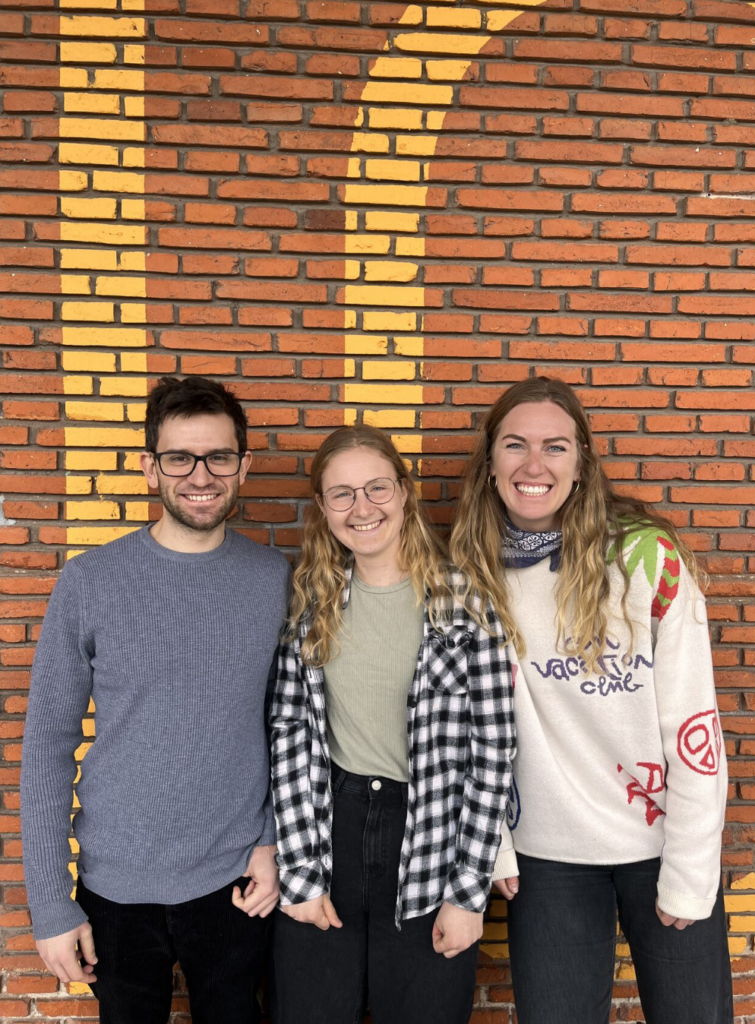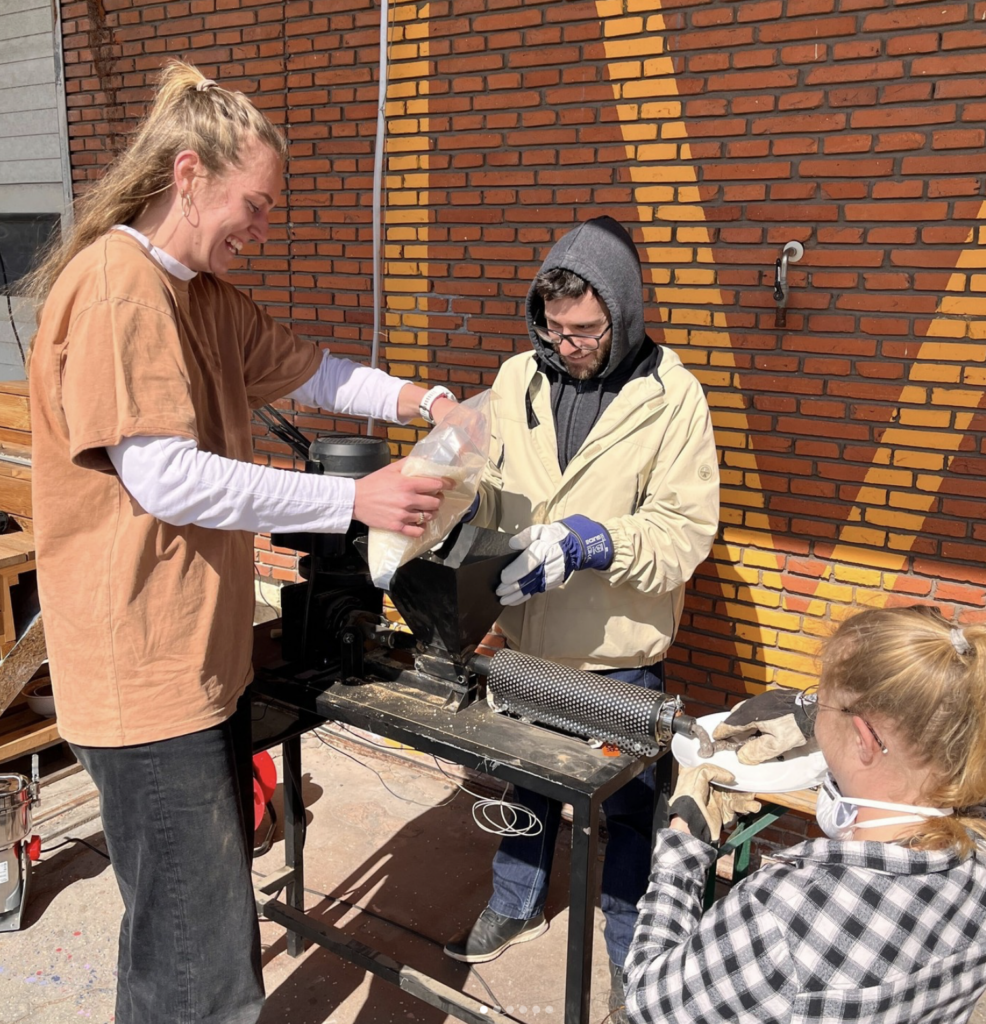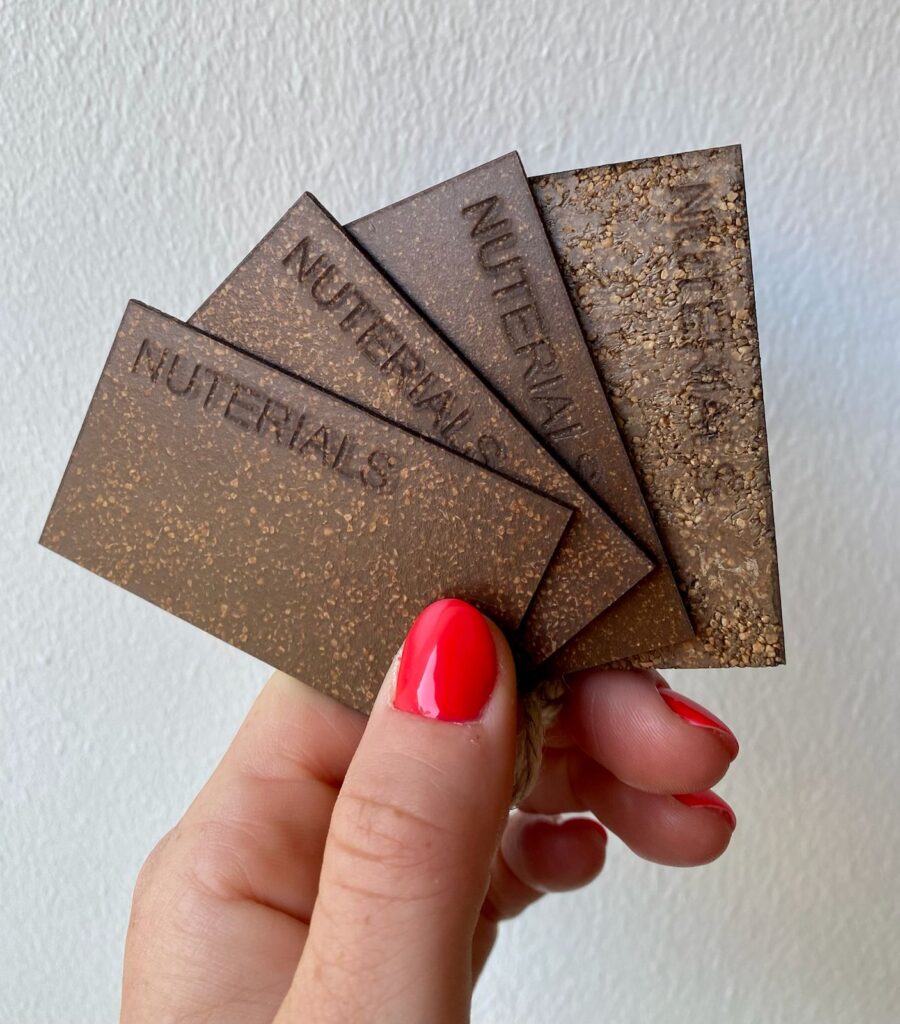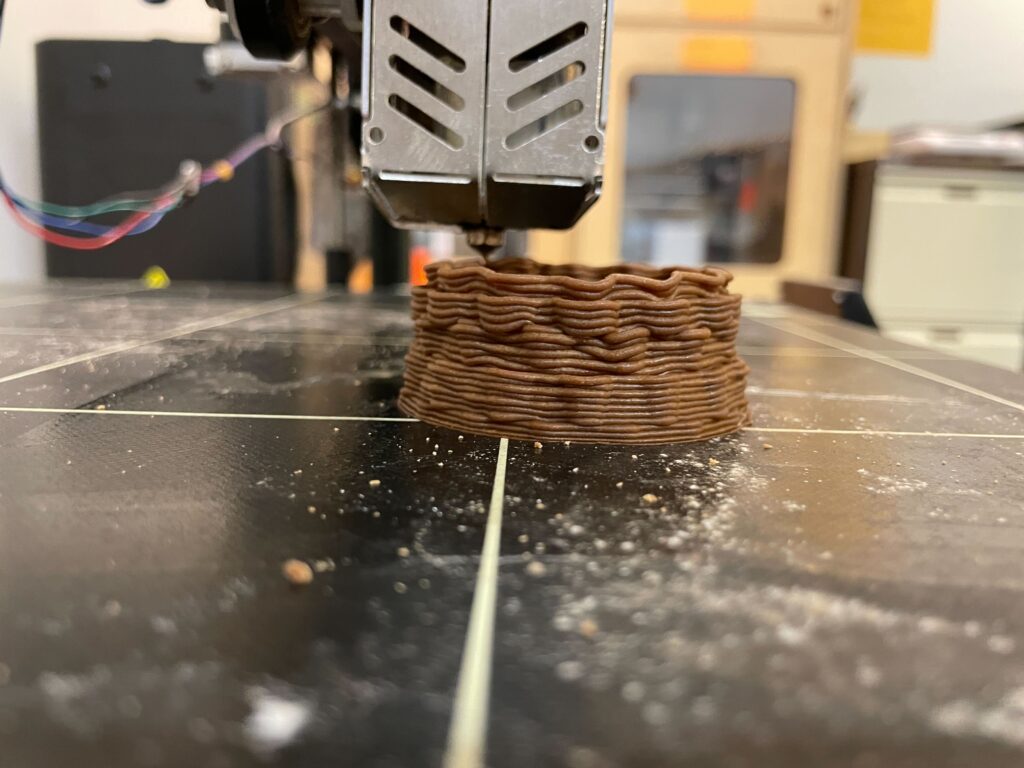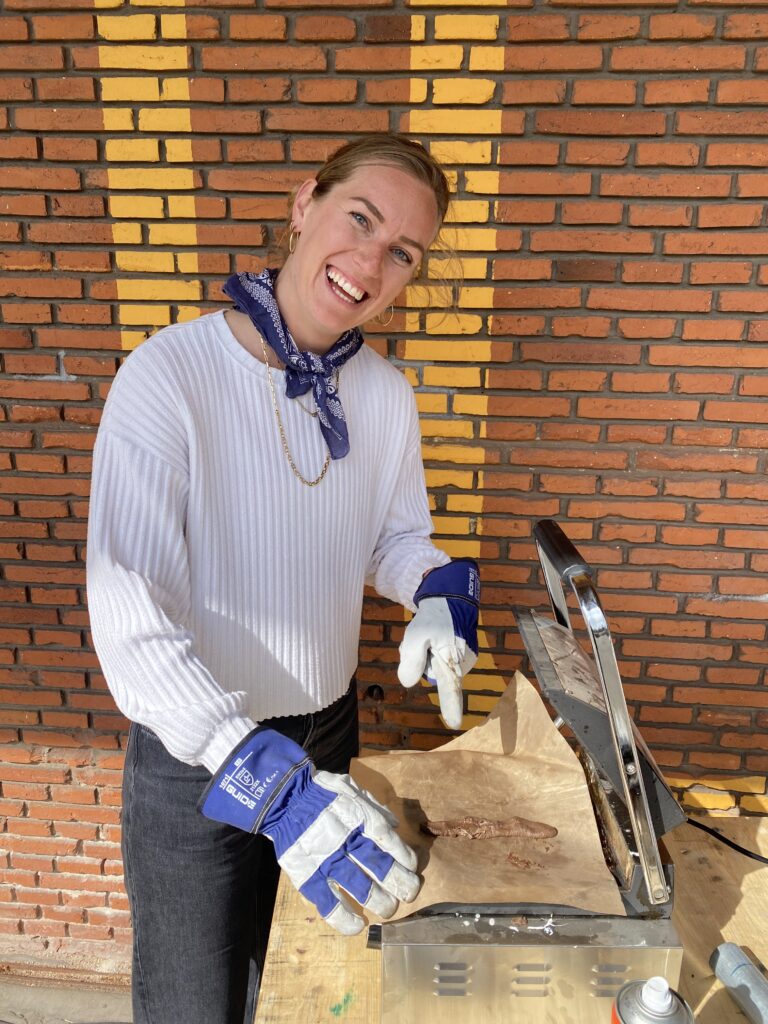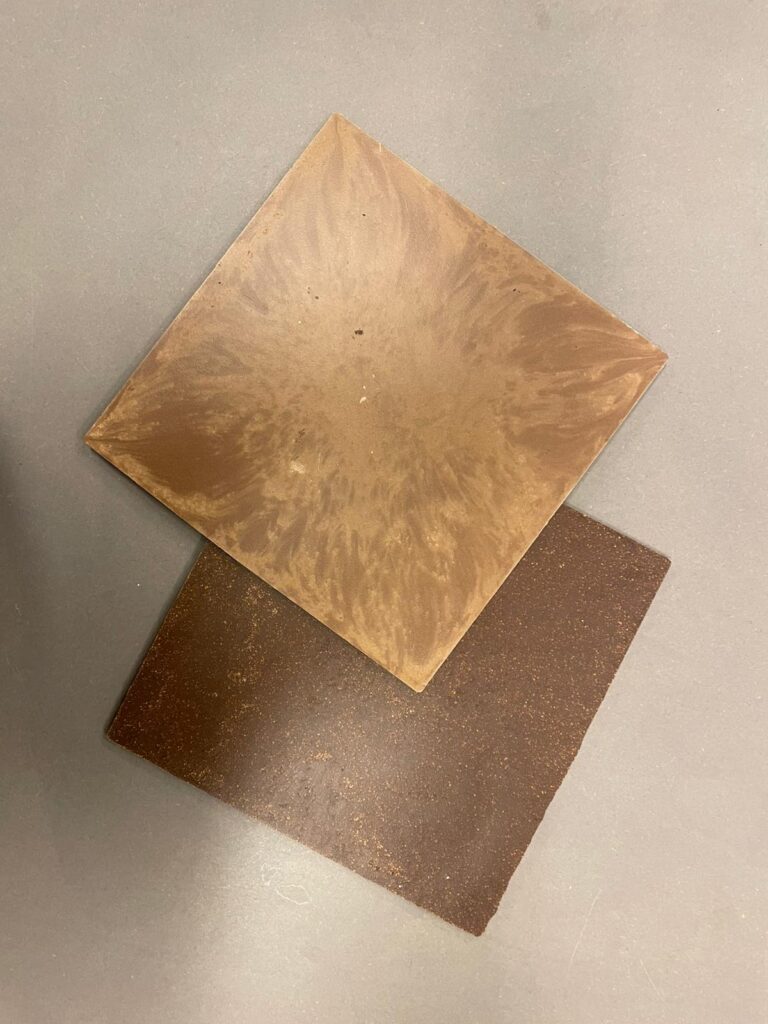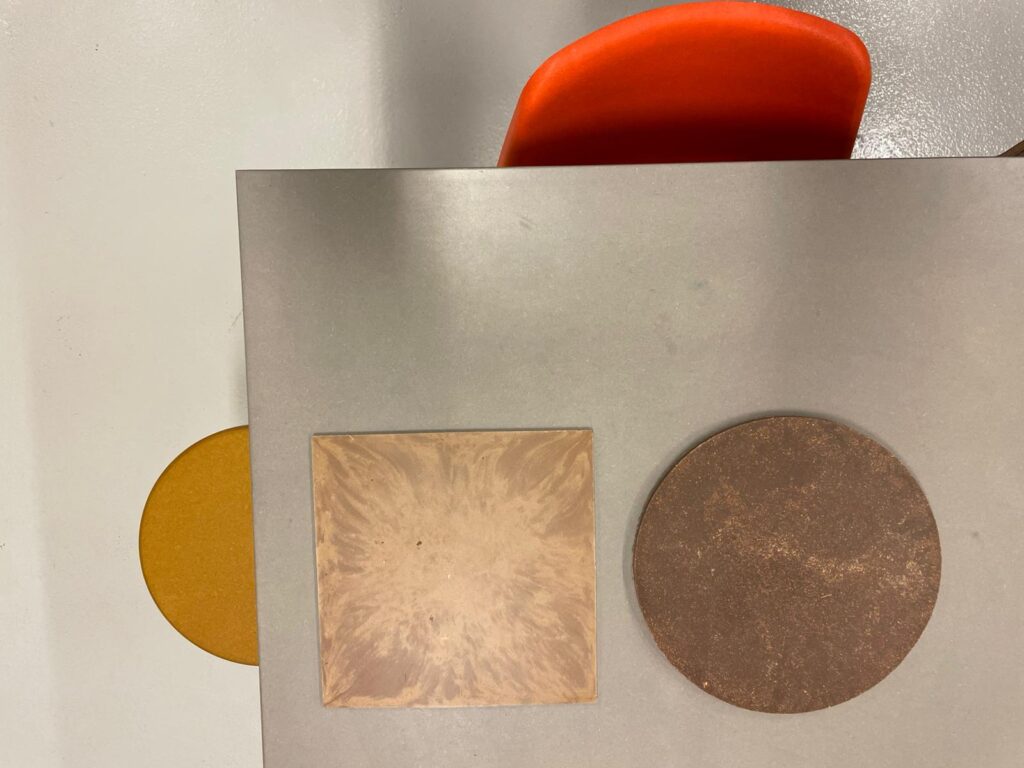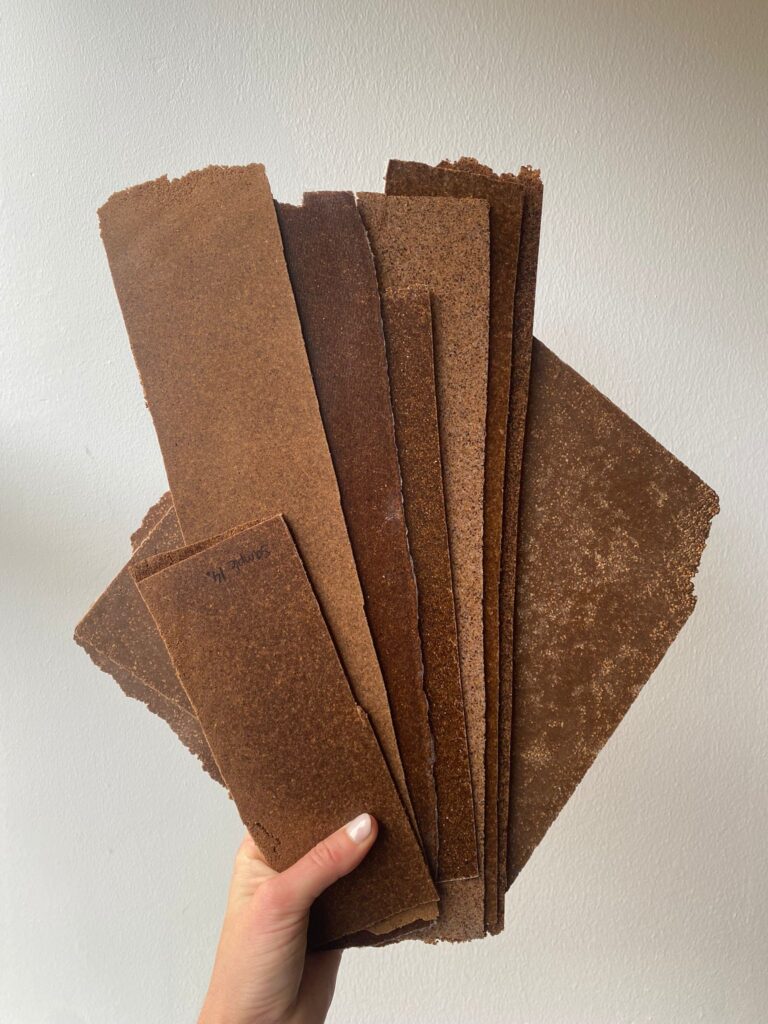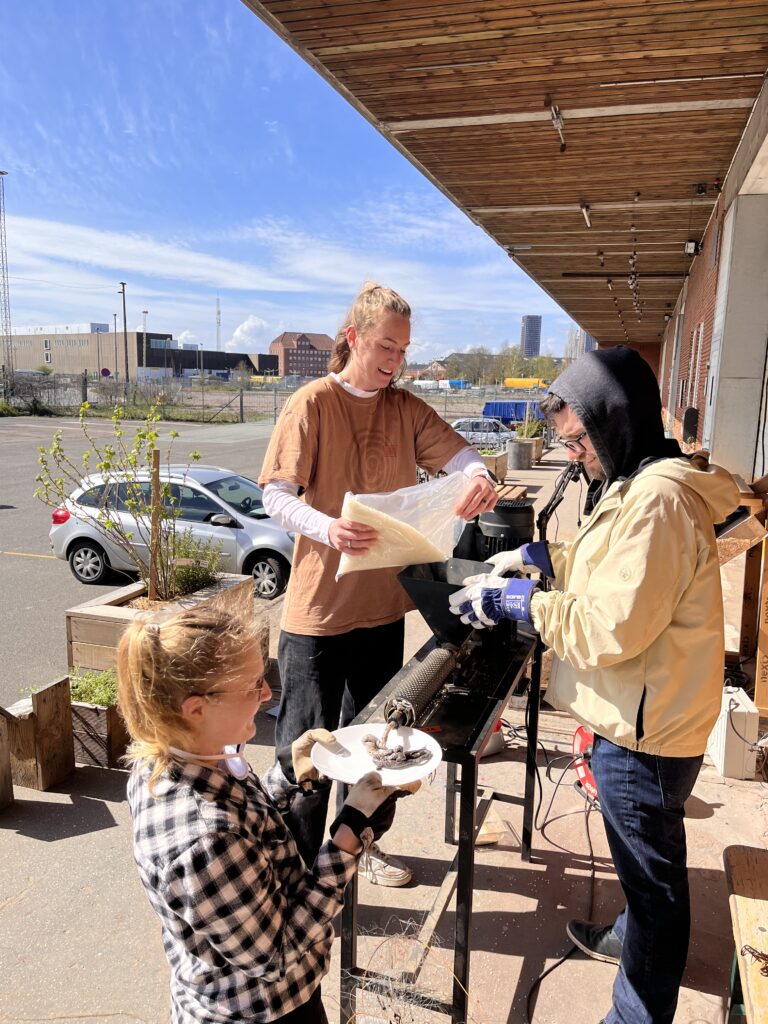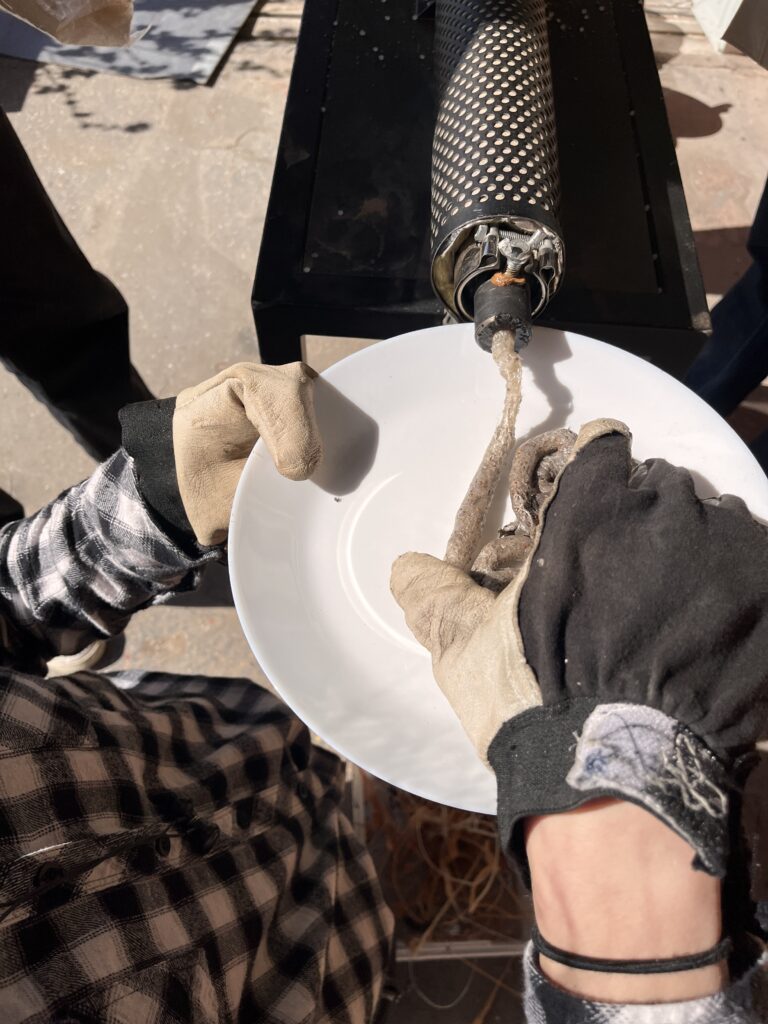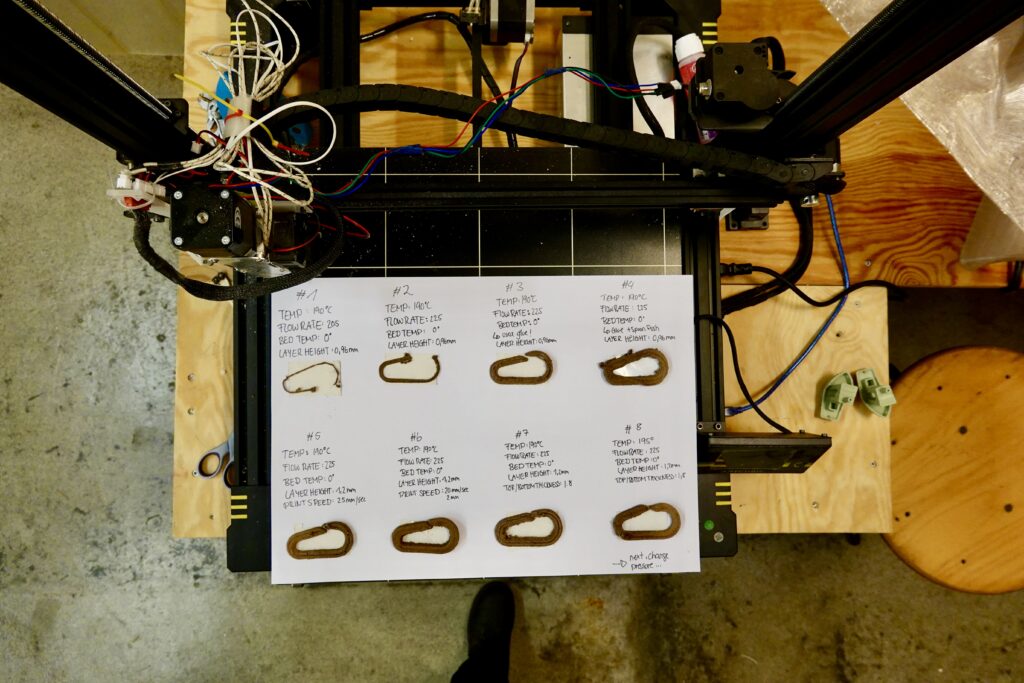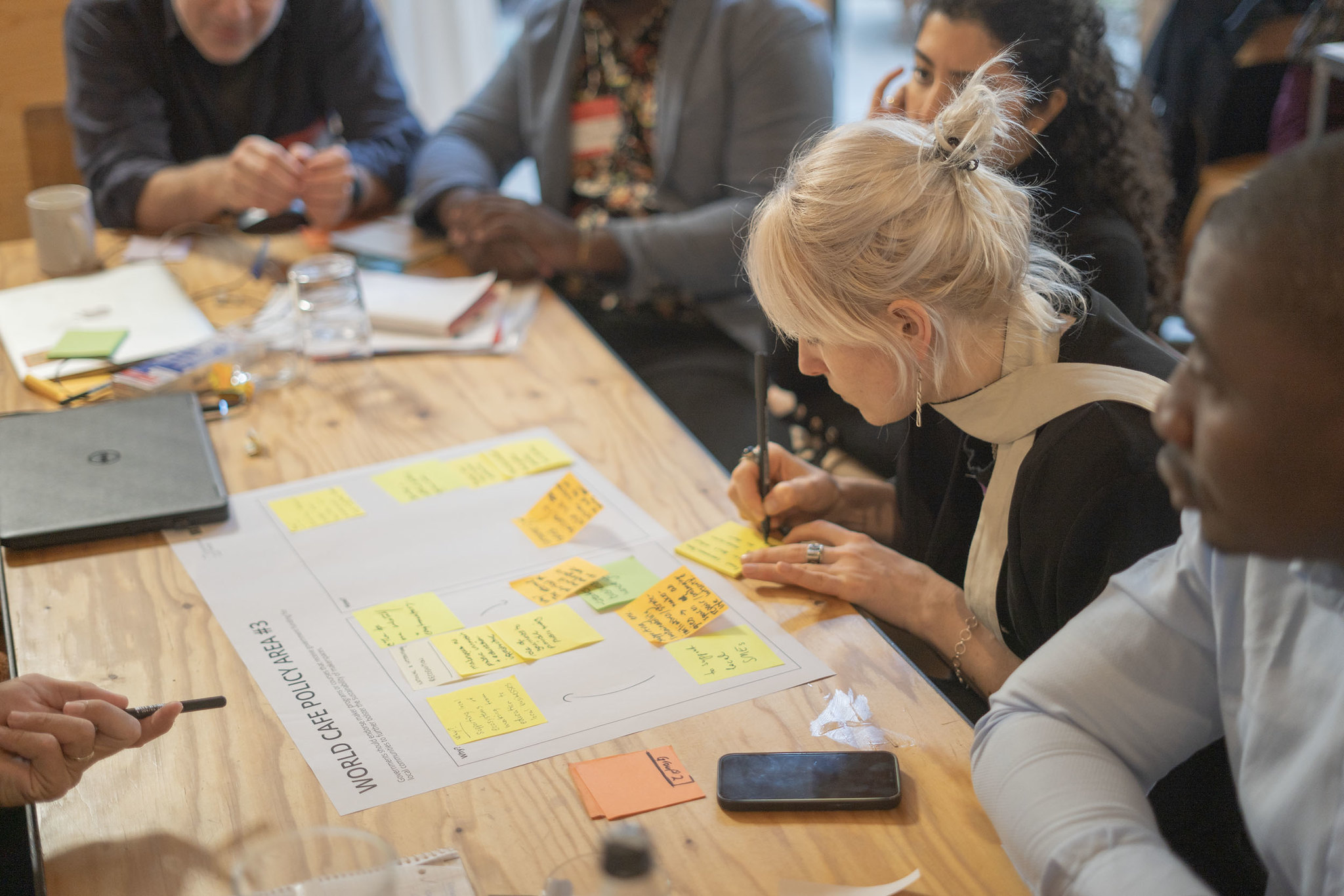What is Distributed Design?
Our values
-
Open
Open refers to the mentality and approach of designers to share and make their design processes transparent, replicable, and accessible, from hardware and software to implementation and usability.
-
Collaborative
Collaborative means enabling citizens to become active participants in the design process through meaningful and participatory co-design approaches.
-
Regenerative
Regenerative making and design principles aspire to renew and restore the systems that we are part of, rather than just replacing or devaluing them.
-
Ecosystemic
Ecosystemic means acknowledging the complexity of interactions between cultural, natural, and social aspects and designing to improve the health of social and environmental systems.
Impact
Our achievements over the past three years would not have been possible without the dedication of our 20 members and our vibrant network of Creative Talents. Their work demonstrates an unshakeable commitment to design rooted in environmental and social principles. Practices regularly go beyond sustainability to regeneration: our community asks not only how can we sustain, but how can our design practices give back and nurture cultural, social, and environmental well-being.
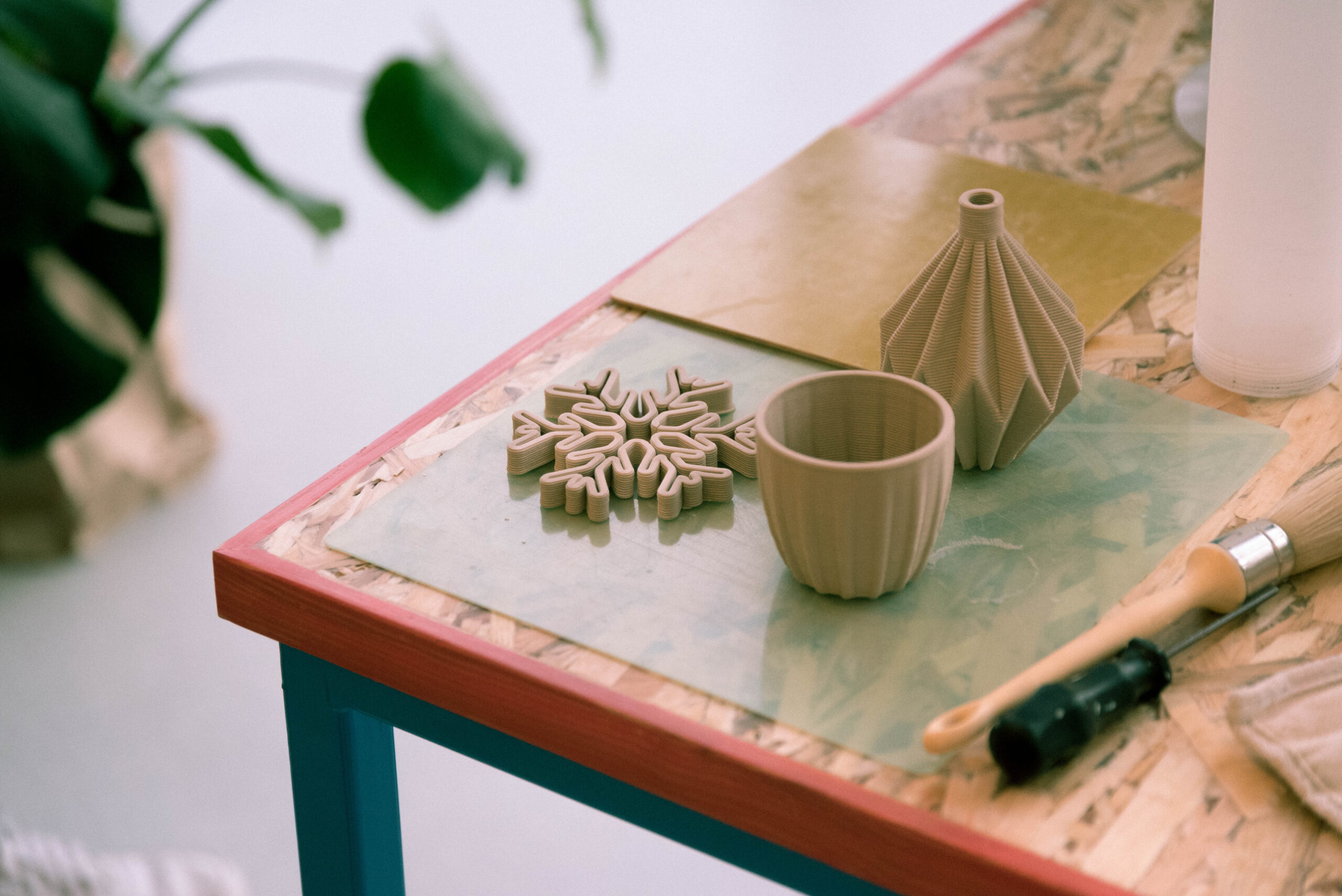
Advisory board
The Advisory Board provides experience and knowledge to the development of the Platform. It meets two times a year with the members of the project, and where possible they also participate in other events organised by the Platform.
-
 Indy Johar
Indy JoharMission Steward
Dark Matter Labs
-
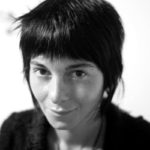 Primavera De Filippi
Primavera De FilippiResearcher at CNRS and Berkman-Klein Center
-
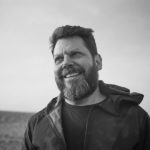 Daniel Charny
Daniel CharnyFounder & Director at Forth
-
 Kate Armstrong
Kate ArmstrongExecutive Director Interspecies Internet
-
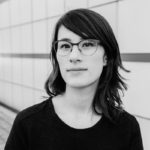 Nadya Peek
Nadya PeekDirector Machine Agency
Distributed design in numbers
Check our impactCreative Talents
+690
Our achievements over the past years would not have been possible without the dedication of our 20 members and our vibrant network of Creative Talents. Their work demonstrates an unshakeable commitment to design rooted in environmental and social principles. Practices regularly go beyond sustainability to regeneration: our community asks not only how can we sustain, but how can our design practices give back and nurture cultural, social, and environmental well-being.
Core Members
22
Our Platform has seen exciting growth since our start. Since 2022, our membership has steadily increased: the Distributed Design Platform is now made up of 22 members including 6 community hubs. These hubs act as regional centers, fostering connections and knowledge exchange among members with diverse backgrounds and expertise. This geographically distributed network allows for more inclusive participation and ensures that the Platform serves the needs of a wider community.
Global Community
+5900
The Distributed Design Platform acts as an exchange and networking hub for the emerging field of distributed design. The initiative aims at developingand promoting the connection between designers, makers and emerging digital and local markets.
Cross-channel reach
+300k
The DDP website is our primary outreach tool, attracting over 14,000 annual visitors and accounting for 80% of our online engagement and making it our most effective platform. Social media platforms, particularly Instagram (13% of our online outreach), complement this reach.
Who is involved?
The Distributed Design Platform is driven by a unique and highly experienced consortium of 22 members from 15 countries, forming a collaborative ecosystem of forward-thinkers across Europe and beyond. The project is coordinated by Fab Lab Barcelona and supported in the scientific and technical coordination by IAAC.
The Art Directors Club Europe (ADC Europe) is a creative network and professional association that brings together designers, art directors, and creative professionals across Europe. The organization focuses on promoting excellence in design, advertising, and communication. In relation to makerspaces, ADC Europe encourages creativity and collaboration through its various awards, events, and educational initiatives. They support makers and designers by offering opportunities to showcase their work, share knowledge, and connect with a broader community of creatives. ADC Europe fosters a culture of innovation and creativity, which aligns with the goals of makerspaces in nurturing new ideas and supporting the design community.
ADC Europe is supporting creativity and collaboration within the design and makerspace communities. Through its awards, events, and educational initiatives, ADC Europe helps connect designers and creatives, providing opportunities to showcase work and engage with a wider network. This strengthens the platform’s mission to foster innovation and cross-disciplinary collaboration in makerspaces.
Arduino is an open-source electronics platform that provides a range of microcontrollers and development tools for creators, engineers, and designers. Known for its simplicity and flexibility, Arduino enables makers to build interactive objects and prototypes by integrating sensors, motors, and other components. In relation to makerspaces, Arduino fosters creativity by offering affordable, user-friendly electronics that empower users to develop their own innovations in fields such as robotics, IoT, and automation.
Ars Longa (FR) is a structure of production, diffusion, mediation of experimental’s forms at crossroads of Art, Research and Society, both in public and private spaces. It favours innovative approaches and focuses on the educational or civic appropriation of projects. City is our playground. We explore and study the movements that make and transform the metabolism of the city. Regulators, operators or citizens, we accompany with them experiments that allow us to think by doing. To manufacture in town, to manufacture the city.
Ars Longa offers a support programme for young emerging designers by providing (1) access to our workshop, (2) an ecosystem of makers / workshops and (3) professionals in several areas of the transition economy.
Working closely with the renowned Parisian design and craft school BOULLE and the MORNING OS incubator, where the workshop is located, we are offering designers a three-stage process: an open call with 4 selection criteria: Creativity, Heritage, Inclusion, Wise Techno. The programme also aims to internationalise creative talent by encouraging international applications.
Exhibitions will be held at Morning OS or as part of collaborative projects.
Center Rog is a creative hub where creatives are supported by skilled mentors to make anything they can think of. With nine production labs at disposal, the hub brings together both traditional hand tools and latest technologies available in makers practices.
The international outreach of the creative hub makes it an essential part of the ecosystem amongst the Distributed Design network, organising yearly a series of international events at their location, hosting diverse creative networks, every time giving the opportunity for networking and exchanges with the audience. Ranging from educational bodies and corporations to non-profits and research organisations, Center Rog strategically design environments and cultures that promote innovative thinking and collective effort. Read more about one of their most recent event Rog Forum.
The Centre for the Creation of Advanced Manufacturing, called Consorci Comerç Artesania i Moda in Catalan, is a research and development center in Catalonia, Spain, focused on advancing manufacturing technologies and promoting innovation in the industrial sector. It provides support to businesses and creators by offering access to cutting-edge tools and expertise in areas like digital fabrication, automation, and robotics. In relation to makerspaces, CCAM helps foster collaboration between industry and the maker community, offering resources for prototyping and small-scale production. Their work empowers makers and startups to explore advanced manufacturing techniques, contributing to the growth and innovation within the broader makerspace ecosystem.
Craftbot designs and manufactures 3D printers for both professionals and makers. Their range of 3D printers is focused on providing high-quality, reliable, and user-friendly machines for prototyping and creative projects. Craftbot contributes to makerspaces by providing accessible and robust 3D printing tools that support a wide variety of applications from education to industrial use.
Craftbot has been a long-standing member of the Distributed Design Platform ecosystem, providing high-quality 3D printers that empower creatives to bring their ideas to life. By offering reliable, user-friendly digital tools, Craftbot enables makers and designers to prototype, iterate, and innovate within makerspaces. As part of the platform, Craftbot contributes to the broader creative ecosystem by providing essential physical tools that streamline the design and production process for users in various industries.
Danish Design Center (DDC) (DK), as Denmark’s national design center, it is DDC’s mission to promote the use of design in business and industry, to help professionalise the design industry and to document, promote and brand Danish design in Denmark and abroad. In other words, the DDC aims to ensure the best possible meeting between the supply and demand sides in the design field. The DDC’s key approach in this encounter is systematic experimentation with design-based value creation in companies.
As Denmark’s national design centre, it is the DDC’s mission to promote the use of design in business and industry, to help professionalise the design industry and to document, promote and brand Danish design in Denmark and abroad. In other words, the DDC aims to ensure the best possible meeting between the supply and demand sides in the design field. The DDC’s key approach in this encounter is systematic experimentation with design-based value creation in companies.
Lorem ipsum dolor sit amet, consectetur adipiscing elit. Ut sed nisi sit amet dolor consequat sagittis eu quis erat. Sed vitae tincidunt ipsum. Sed et feugiat lacus, nec facilisis erat. Maecenas eu tempor mauris. Nunc sodales gravida massa, ac rutrum enim suscipit quis. Nunc tempus elementum sem sed venenatis. Quisque sodales, lorem sed lobortis mattis, erat erat bibendum eros, in sollicitudin risus magna vel eros. Quisque mattis mauris leo. Nunc consequat enim quis eros egestas, ut cursus turpis convallis. Maecenas ullamcorper in eros vel pulvinar. Nulla id urna sem. Etiam quis bibendum metus.
Disseny Hub Barcelona (DHUB) is a cultural and innovation hub dedicated to design, architecture, and creativity. It brings together exhibitions, educational programs, and resources to foster innovation and collaboration within the design community. In relation to makerspaces, DHUB serves as a center for creativity, providing spaces for prototyping, design workshops, and digital fabrication. DHUB supports makers and designers by offering access to cutting-edge tools and facilities, encouraging collaboration, and promoting the use of design thinking and innovative technologies in makerspaces.
Acting as a central hub for design, innovation, and creativity, Disseny Hub Barcelona (DHUB) is an integral part of the Distributed Design Platform ecosystem. By offering resources such as prototyping spaces, workshops, and access to advanced fabrication tools, DHUB supports makers, designers, and creatives in developing new ideas and products. Its educational programs and collaborative environment align with the platform’s mission to foster cross-disciplinary innovation, making DHUB a key partner in promoting sustainable and forward-thinking design practices within makerspaces.
Espacio Open (ES), a private non profit cultural association, is a creative and social projects accelerator based in Bilbao. Its objectives are to influence the local social and economic scene in the city by boosting emerging cultural trends through the design and implementation of innovation-based projects, mixing art, design, technology and social issues, with both local and global perspective. The organisation manages 1.000 square meters of installations and 15 workers. The project moved in 2011 to the Bilbao Old Cookie Factory, in the Zorrozaurre island. As a Fab Lab/ Makerspace, Espacio Open organizes the Maker Faire Bilbao since 2013, one of Europe’s oldest maker movement gatherings, launches annual calls for artistic residencies and is a partner in several European projects linked to urban innovation, among other activities.
Through Fab Lab Bilbao, Espacio Open offers a work space and professional support for the development of creative projects, through annual calls for artistic residencies. In addition, Espacio Open annually organizes the creative technologies festival Maker Faire Bilbao including professional workshops focused on creative talents. These activities are aimed at supporting professionals from different disciplines so that they can introduce open technologies into their creative processes and show their projects to broader audiences.
The European Crafts Alliance (ECA), formerly known as WCCE (World Crafts Council Europe), is an organization that represents and supports the craft sector across Europe. ECA promotes traditional and contemporary crafts, aiming to enhance the role of artisans and craft organizations within the cultural and economic landscape. In relation to makerspaces, ECA works to strengthen the craft community by advocating for the integration of digital fabrication and traditional craft techniques. It fosters collaboration, innovation, and knowledge-sharing within makerspaces, helping craft professionals access resources and opportunities for creative development and sustainable practices.
The European Crafts Alliance (ECA), formerly known as WCCE, is an important strategic partner within the Distributed Design Platform ecosystem, working to bridge the gap between traditional crafts and digital innovation. By updating its name and focus, ECA continues to play a crucial role in reaching the craft sector, advocating for the integration of digital tools and traditional techniques. Through knowledge exchange, including the development of learning materials and collaborative projects, ECA fosters innovation and supports the growth of makerspaces by providing craft professionals with access to new technologies and creative resources. This partnership enhances the platform’s mission to promote cross-disciplinary learning and the evolution of design practices within the craft community.
The Fab City Foundation champions the Fab City Global Initiative through pioneering projects in social innovation, urban research, and educational programs. Our Foundation fosters a network of forward-thinking cities, organizes the annual Fab City Summit with local partners, and leads strategic research on transformative urban models such as the Fab City Full Stack and the PITO to DIDO transition. The Master in Design for Distributed Innovation (MDDI) is a distributed learning program focused on the intersection of design, technology, ecosystems, and communities to improve interspecies wellbeing. It connects a global community of changemakers with local innovators to address complex challenges. The Fab City Challenges are a unique collaboration format that brings together regional and international innovation communities to propose meaningful outcomes that respond to urgent areas of intervention in cities and regions as drivers of change. The Full Stack Bootcamp is a comprehensive learning experience designed to empower Fab City participants with a deep understanding of the seven layers of the Fab City Full Stack (infrastructure, learning, innovation, communities, territories, bioregions, and planet). The annual Fab City Awards celebrate the world’s most innovative urban and rural solutions. In addition, Fab City Foundation participates in EU-funded projects and intergovernmental and other public/privately funded projects for research, technological implementation, community engagement, and methodological innovation. For participating in any of these initiatives, or for partnerships and collaborations, please reach out to [email protected].
As a founding member of the Distributed Design Platform, Fab City Foundation is dedicated to promoting Distributed Design practices through events, activities, and outreach across the Fab City Global Community. We facilitate enriching collaborations, engage various stakeholders, and spark inspiration through events, meetups, and projects. Our blog posts showcase the impact of our activities and we share high-quality resources to open-source knowledge gained from our initiatives. We continually foster global collaboration and knowledge exchange to support inclusivity, diversity, and sustainability, aiming to strengthen the field of Distributed Design and foster innovation through our Global Network.
The Fab Foundation is a nonprofit organization that supports the global network of Fab Labs (fabrication laboratories), which provide access to digital fabrication tools and resources. These labs enable individuals to create prototypes, develop products, and engage in hands-on learning in areas like electronics, robotics, and design. The Fab Foundation promotes education, innovation, and entrepreneurship, helping communities harness the potential of digital fabrication and empowering makers to bring their ideas to life.
As the first Fab Lab founded in Europe back in 2007, Fab Lab Barcelona is a leading hub for creativity, collaboration, and education, situated at the forefront of the global Fab Lab Network. As part of the Institute for Advanced Architecture of Catalonia (IAAC), it serves as a multidisciplinary space where technology, design, and sustainability converge to shape a fairer, regenerative and inclusive futures. With expertise spanning from digital fabrication, to circular economy, and distributed design, Fab Lab Barcelona empowers individuals, organisations and communities to develop solutions that address local and global challenges. From prototyping groundbreaking ideas to fostering educational programmes, it is a dynamic space where makers, designers, and researchers turn visions into reality, through testing, prototyping and making.
As the coordinator of the Distributed Design Platform since its beginning in 2018, Fab Lab Barcelona is leading the project with scientific and technical support from IAAC. Its role is dedicated to promoting Distributed Design practices through events, activities, and outreach across Fab Lab Barcelona and the platform’s growing ecosystems. Together with the core members of the project, we facilitate collaborations, engaging various stakeholders through various events, workshops, and projects. As part of a larger network of makerspaces, Fab Lab Barcelona has a growing impact at a local and international scale, playing a key role in the makers movement and open source knowledge education. Continually fostering global collaboration and knowledge exchange, is one of the ways Fab lab Barcelona supports inclusivity, diversity, and sustainability to strengthen the field of Distributed Design.
FabLab Budapest (HU) is a ten years old open innovation centre, one of the first FabLab in Central-East Europe and until now the only member of the FabLab network in Hungary. We are located in the downtown of Budapest offering our services, access to our workshop, tools and knowledge for students, entrepreneurs and companies. We believe in bottom-up innovation and help others to create their first prototype. Our goal is the democratisation of digital manufacturing technologies to provide access to personal and collaborative invention and innovation using digital technologies. We have a strong cooperation with the Moholy-Nagy University of Art and Design. In this cooperation we try to foster students of traditional craftsmanship to enter into the 21th Century with digital manufacturing technologies and start their own design brand. We provide a comprehensive education program on design thinking, digital manufacturing and DIY biology.
Fablabs.io is a global network and online platform that connects makerspaces, fab labs, and DIY communities. It helps individuals and organizations find local maker spaces and access digital fabrication tools like 3D printers, laser cutters, and CNC machines. By providing a map and resources for these community-driven spaces, Fablabs.io plays a key role in supporting makers and creators in accessing the tools and networks they need to bring their ideas to life.
Fablabs.io is connects makers to a global network of fab labs and makerspaces. It provides access to a wide range of digital fabrication tools such as 3D printers, laser cutters, and CNC machines, enabling creatives to prototype and produce products at a small scale. By linking users to existing maker communities, Fablabs.io fosters collaboration and resource-sharing, supporting the development of new ideas and innovative projects across diverse sectors.
Fido is an organization focused on fostering innovation and sustainability through design and technology. They work on projects that combine digital fabrication, material science, and creative thinking to develop new solutions for industries such as fashion, product design, and sustainability. In relation to makerspaces, Fido provides resources, knowledge, and tools to support creators in developing prototypes and sustainable products. By integrating technology and eco-friendly design practices, Fido encourages collaboration within makerspaces, helping to drive forward creative, environmentally-conscious projects.
Fido is closely aligned with the Distributed Design Platform, sharing a common vision of fostering innovation and sustainability through design and technology. While there has been no specific collaboration to date, Fido has long-standing relationships with local partners like DissenyHUB and Fab Lab Barcelona, with a strong focus on future potential collaborations. Their shared commitment to greater awarness and equity in the design industry, Fido as an important contributor to the platform’s ecosystem, constantly exploring new opportunities for collaboration and innovation within makerspaces.
Global Innovation Gathering (DE) is a vibrant, diverse community of innovation hubs, makerspaces, hackerspaces and other grassroots innovation community spaces alongside individual innovators, makers, technologists and changemakers. GIG is pursuing a new vision for global cooperation based on equality, openness and sharing. We aim to enable more diversity in the production of technology and global innovation processes and support open and sustainable solutions developed by grassroots innovators.With solid roots in the global south, we share, collaborate and work together. GIG provides a platform for meaningful exchange by fostering knowledge exchange and collaboration between its members. GIG contributes to creating and using open, inclusive and sustainable technologies and meaningful connections between innovators, positively impacting the policies and frameworks for grassroots innovation. We support research in innovation and development, digital rights and technology ecosystem questions carried out by local experts and international teams.
GIG works to connect innovators and makers from around the world. It aims to bring different design perspectives to the heart of Europe and facilitate real-time collaboration between global south and global north partners.
Our main activity is organizing the Global Innovation Gathering annual event in Berlin. Members of the network, as well as partners in Europe, are invited to attend, meet and organize workshops together on topics of education, critical making and inclusivity.
Habibi.Works is an intercultural makerspace and FabLab situated in Katsikas, northwest Greece, over the road from Katsikas “hospitality centre” – a camp built to accommodate over 1000 refugees and asylum-seekers during the long periods entailed in awaiting decisions on their asylum applications. Founded in 2016 in a context of increasing precarity for people on the move, Habibi.Works is designed as a platform for education, empowerment, and community.
Individuals of all backgrounds can make use of Habibi.Works’ 13 working areas, benefiting from free access to tools, machines and guidance from team members experienced in each area. These areas include: metal, wood and bicycle repair workshops; a plastic upcycling lab; a MediaLab fitted with a 3D printer, lasercutter and computer lab; a garden feeding a community kitchen (where community meals are prepared on a daily basis); a ‘storytellers lab’ (including a recording studio fitted into a geodesic dome); a sewing atelier and creative atelier; a language learning hub (housed in our multilingual lending library); and a community-led gym/sports programme.
Since 2010, Happylab is Austria’s first Fab Lab. Learning from each other is an important point in the Happylab community. In addition to the physical meeting place provided for joint working and tinkering, a web-based forum and a wiki page also offer the opportunity to exchange experiences. The Happylab is an interdisciplinary entry point for all who have creative and/or technological project ideas. It is embedded within a framework of universities, business incubators, specialised SMEs, industries to provide the lab users with services when their idea grows beyond the scope of the lab.
Lorem ipsum dolor sit amet, consectetur adipiscing elit. Ut sed nisi sit amet dolor consequat sagittis eu quis erat. Sed vitae tincidunt ipsum. Sed et feugiat lacus, nec facilisis erat. Maecenas eu tempor mauris. Nunc sodales gravida massa, ac rutrum enim suscipit quis. Nunc tempus elementum sem sed venenatis. Quisque sodales, lorem sed lobortis mattis, erat erat bibendum eros, in sollicitudin risus magna vel eros. Quisque mattis mauris leo. Nunc consequat enim quis eros egestas, ut cursus turpis convallis. Maecenas ullamcorper in eros vel pulvinar. Nulla id urna sem. Etiam quis bibendum metus.
I.O.Me.254 is an organization focused on using design and technology to preserve heritage and promote sustainability. They offer training and workshops that combine traditional craftsmanship with modern techniques, empowering local communities to create innovative products from locally sourced materials. The organization operates in both Lamu and Mombasa, providing opportunities for makers to learn how to integrate new technologies with traditional practices in areas such as construction, fashion, and product design.
I.O.Me.254 is one of a few partners in Africa, bridging the gap between heritage preservation and modern technology. Their work in Lamu and Mombasa supports local communities by offering training that blends traditional craftsmanship with new fabrication methods. This intersection of old and new aligns with the platform’s mission of fostering innovation, creativity, and sustainable design practices within makerspaces, while also preserving cultural heritage.
(IAAC)
The Institute for Advanced Architecture of Catalonia (IAAC) is a center for research, education, production and outreach, with the mission of envisioning the future habitat of our society and building it in the present. IAAC follows the digital revolution at all scales (from bits to geography, from micro-controllers to cities, from materials to the territory) to expand the boundaries of architecture and design and meet the challenges faced by humanity. IAAC hosts Fab Lab Barcelona, the first and most advanced digital production laboratory in EU.
One of the four departments inside the Institute for Advanced Architecture of Catalonia (IAAC) is the Fab Lab Barcelona, coordinator of the Distributed Design Platform since 2017. Fab Lab Barcelona is one of the leading laboratories of the worldwide network of Fab Labs, dedicated to research, education, production and outreach, with the mission to rethink the way we learn, work and play.
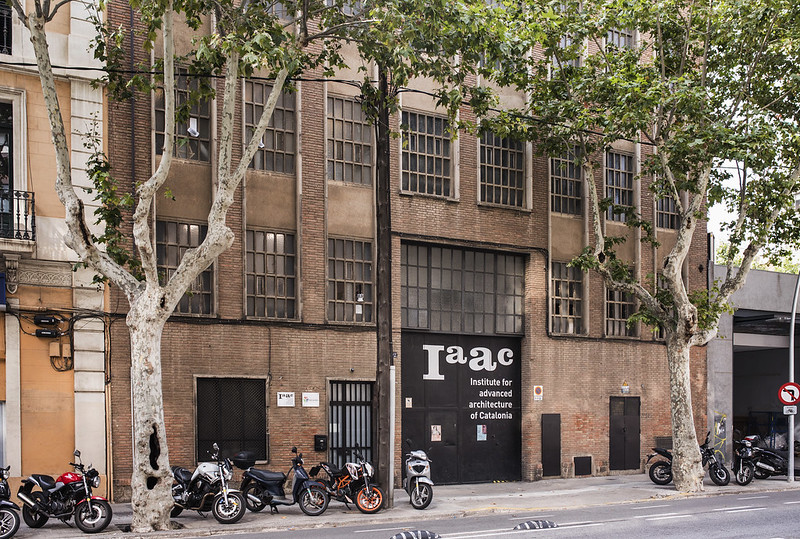
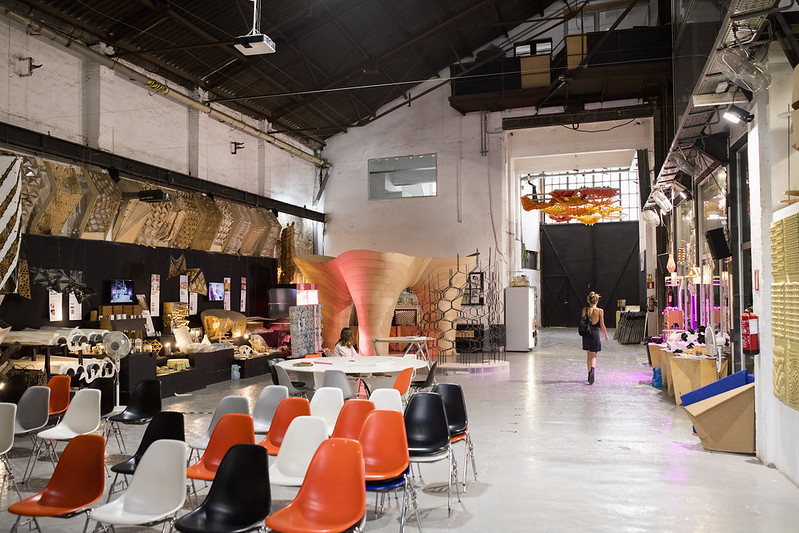
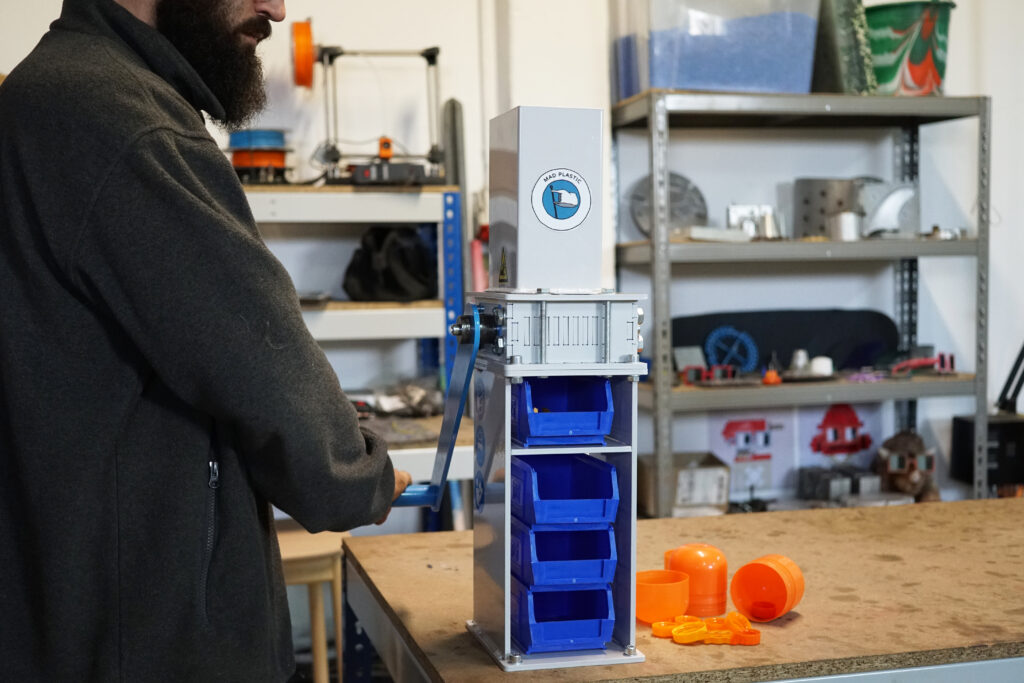
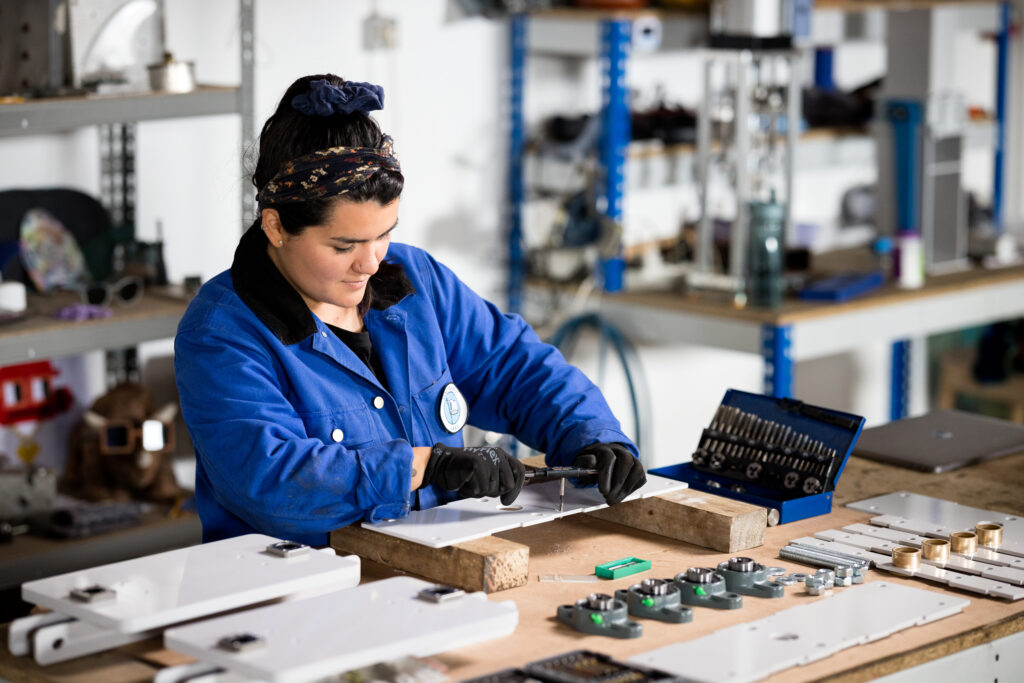
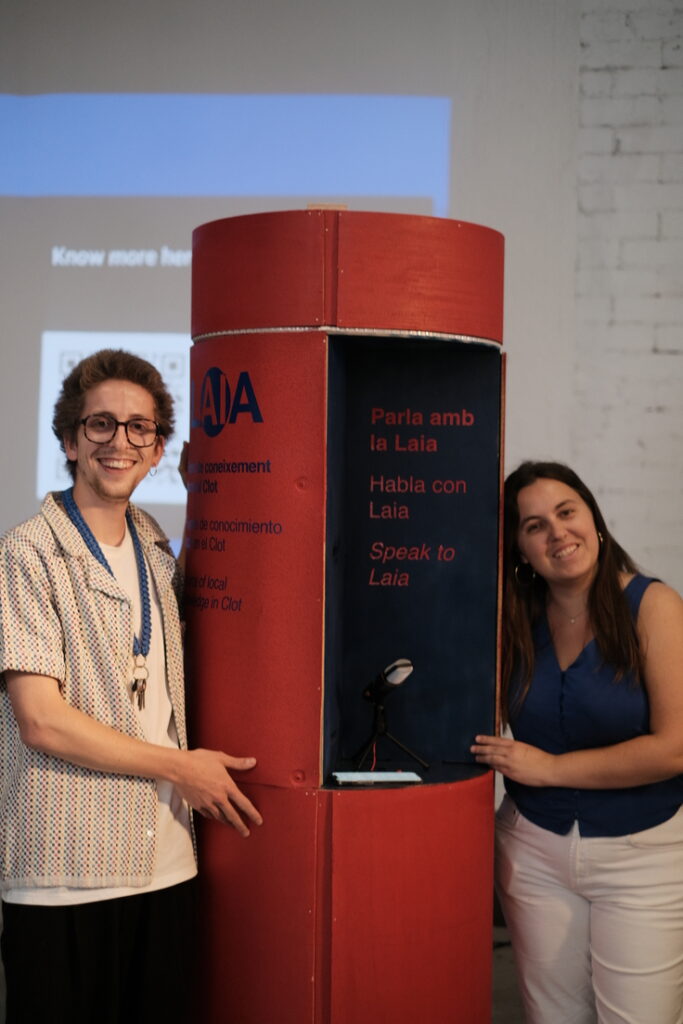
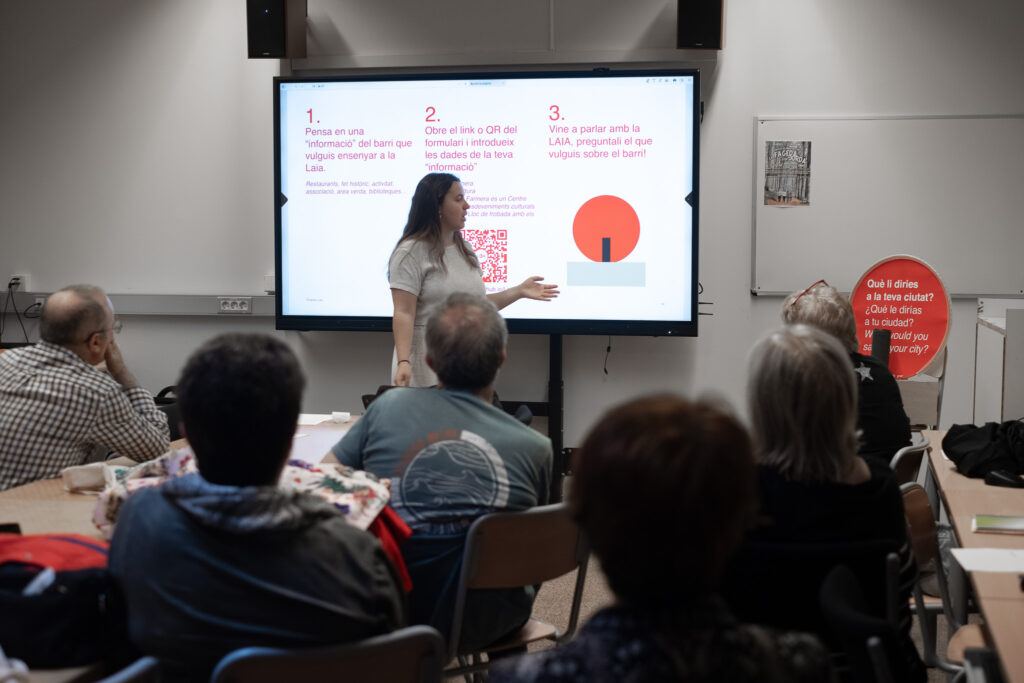
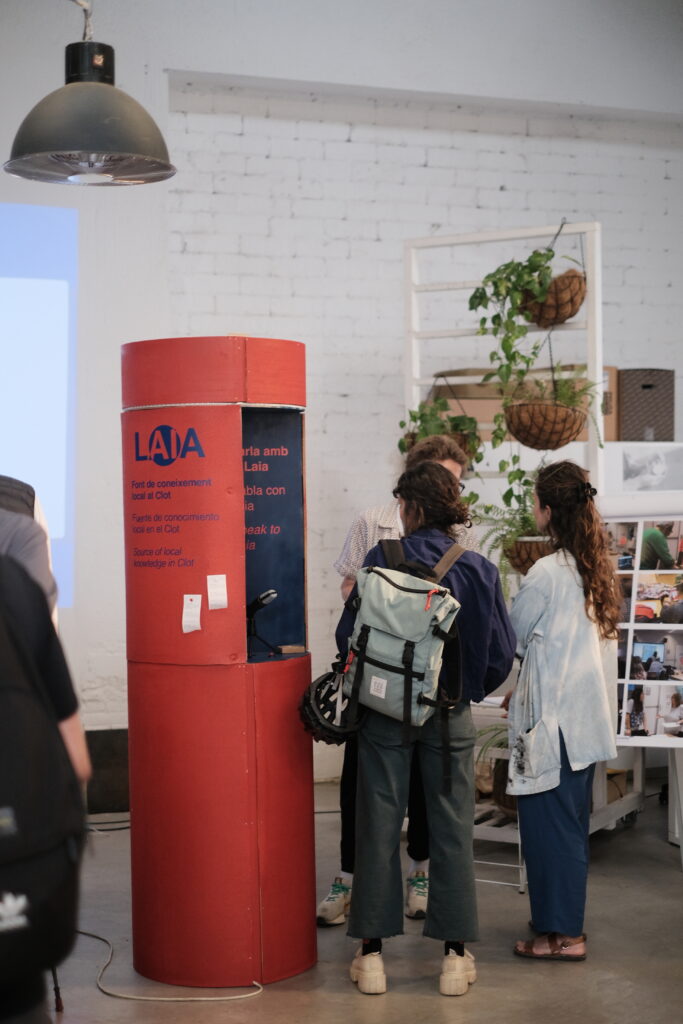
JetClay is an open source Platform that explores the world of 3d printing and ceramics, relating the digital and the analog, tradition and technology, makers and ceramists. They develop their own tools to make unique pieces of ceramics at the crossroads among industrial design, architecture, interior design and sculpture.
JetClay is a training hub and strategic partner to the Distributed design Platform who has been working over the years together with the Fab Lab to develop open source tools for the community along with students of programmes in IaaC.
Kickstarter is a crowdfunding platform that helps creators raise funds to bring their projects to life. Makerspaces like Fab Lab Barcelona, which focus on digital fabrication and innovation, provide the tools and resources needed to develop prototypes. Kickstarter enables these creators to connect with backers and turn their ideas into reality.
Kickstarter is supporting creative talents wanting to develop their project, by providing a platform to fund and share their innovative projects. In collaboration with makerspaces such as Fab Lab Barcelona, creators can prototype their ideas using advanced fabrication tools and then use Kickstarter to reach a global audience. This creates a seamless flow from concept to creation, allowing diverse contributors to collaborate, fund, and scale their work, making it an integral platform in the distributed design ecosystem.
Kniterate offers a digital knitting machine designed to simplify and democratize garment production. Its technology enables designers and makers to create knitwear in a highly customizable and efficient way. By providing an affordable, easy-to-use knitting machine, Kniterate contributes to makerspaces by empowering users to design and produce their own textiles and fashion prototypes.
Kniterate has been a key player in the Distributed Design Platform, providing a digital knitting machine that bridges the gap between traditional textile production and digital innovation. Their machine allows designers to create customizable knitwear efficiently, making textile production more accessible to a wider range of creatives. As part of the platform, Kniterate enables makerspaces to integrate cutting-edge technology into the fashion and design processes, supporting innovation and personal expression in the garment industry.
Knowledge Center of Vestmannaeyjar (IS) in Iceland fosters innovation and economic diversity by actively supporting entrepreneurs and businesses. It operates Fab Lab Vestmannaeyjar, a digital workshop open to various groups. As a founding partner of 14 other Fab Labs in Iceland, it offers guidance for establishing similar spaces and hosts workshops. Through programs, it aids innovation from conception to startup. Associated with projects like Distributed Design and the Vestmannaeyjar Coastal Community, it connects various sectors for ocean awareness and economic development. Additionally, it conducts educational programs for students and offers Fab Academy courses.
In an endeavor led by the Knowledge Center Vestmannaeyjar Iceland, Fab Lab Vestmannaeyjar emerges as a pivotal hub for innovation and creativity. Presently, the program is actively providing personalized support to budding creatives & entrepreneurs, offering them year-long access to cutting-edge tools, knowledge, and expertise in digital fabrication and project strategy. A part of the initiative is an intensive maker-to-market bootcamp. This event is empowering participants with crucial skills in business development and project management, shaping their journey from creative ideation to market success. Through tailored guidance and in-kind support, the center is fostering community building, internationalization, and revenue diversification, propelling emerging talents towards entrepreneurial success.
mAkE, part of the African Makerspace Alliance, is a network that connects and supports makerspaces across Africa. It fosters collaboration, knowledge-sharing, and innovation within the African maker community, focusing on empowering local creators and entrepreneurs with the tools, training, and resources they need. The Alliance works to establish sustainable and scalable makerspaces across Africa, contributing to the global makerspace ecosystem by promoting local solutions and fostering creativity.
mAkE, part of the African Makerspace Alliance, strengthens the Distributed Design Platform ecosystem by focusing on the African continent. It connects makerspaces across Africa, empowering local creators with tools, resources, and a collaborative network to innovate and scale projects. mAkE fosters the growth of makerspaces and encourages knowledge-sharing and creativity, helping African makers access digital and physical resources to develop sustainable solutions and bring product ideas to life in their communities.
Make Works is an online platform that connects designers and makers with local manufacturers and fabricators. It provides a directory of UK-based workshops, fabricators, and makerspaces offering services like CNC machining, 3D printing, and more. Make Works enables creatives to find the right manufacturing partners and production tools, helping to streamline the prototyping and production process within the makerspace ecosystem.
Make Works contributes to the Distributed Design Platform by offering a comprehensive directory that connects designers and makers with local manufacturers and workshops. This platform helps creatives access specialized tools and production capabilities such as CNC machining and 3D printing, enabling small-scale product development and prototyping. By linking makers to the right manufacturing partners, Make Works strengthens the makerspace ecosystem, facilitating the transition from idea to product within local and regional networks.
Maker is a collaborative workshop and knowledge center, dedicated to transforming how ideas take shape. Rooted in design-by-collaboration, we empower professionals to share knowledge, learn new skills, and bring their visions to life. By offering hands-on training with tools and machinery, promoting circular design solutions, nurturing strategic business development, and hosting public events that inspire and connect, we strive to make it more accessible for everyone to shape a better tomorrow.
Learn more about Maker here
Maker is working to foster and test the knowledge, technology, and practices of maker culture. It establishes partnerships and collaborates with peers in the maker community, and organizations from the industry, educational and civic society field on knowledge projects and activities that communicate, broaden and engage a broad target group of citizens in activities around technological trends and tendencies, and hands on making.
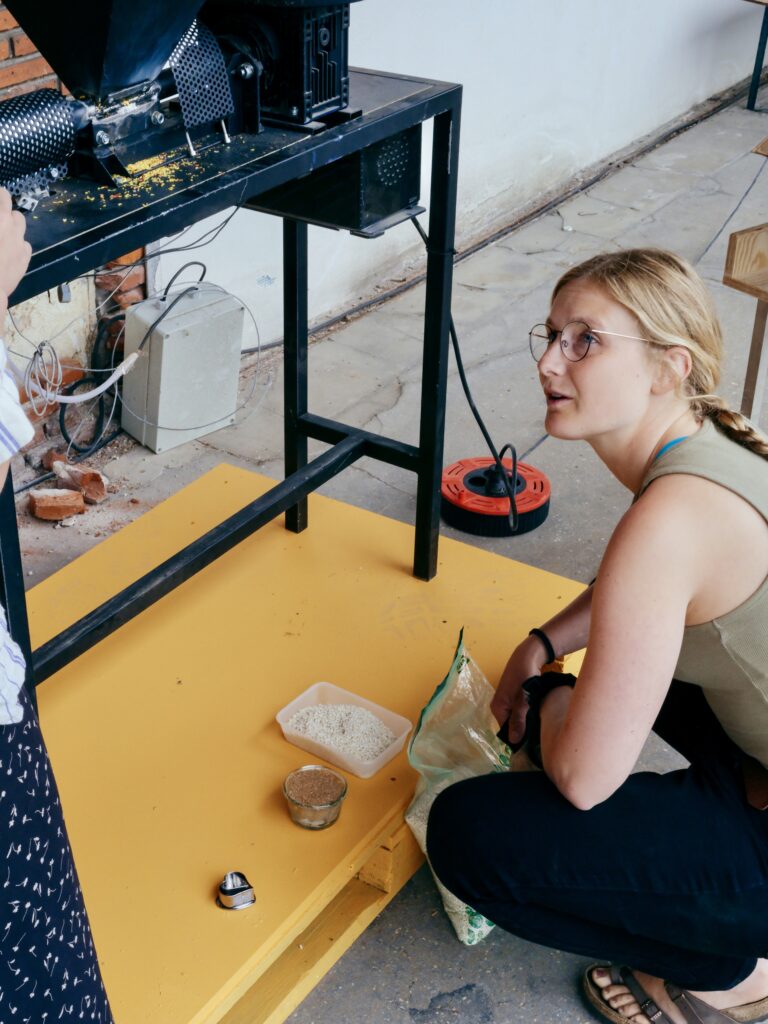
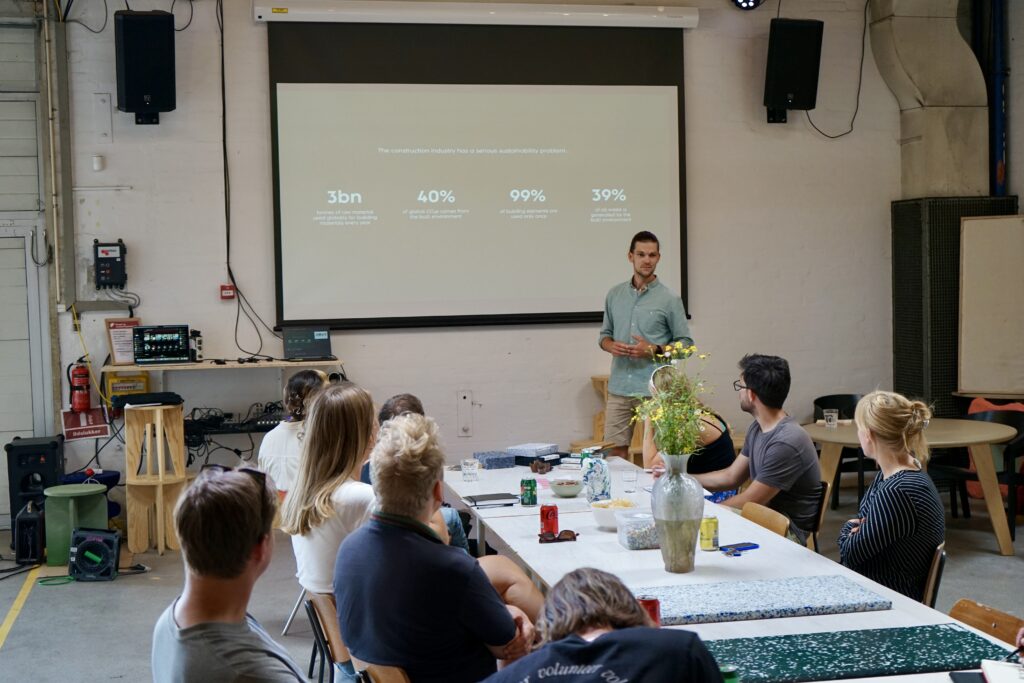
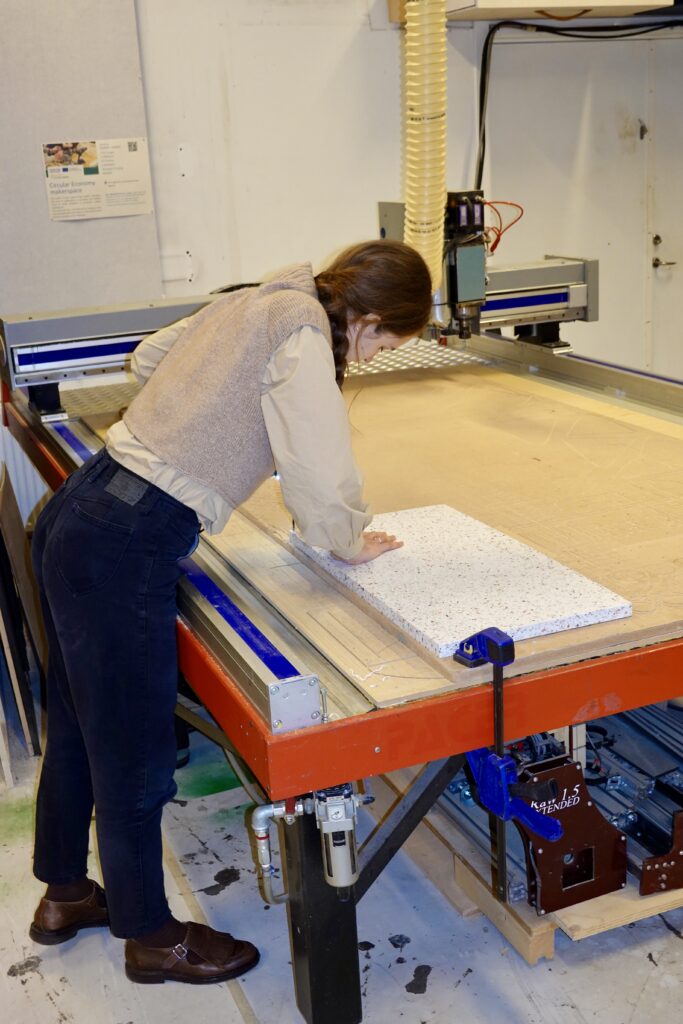
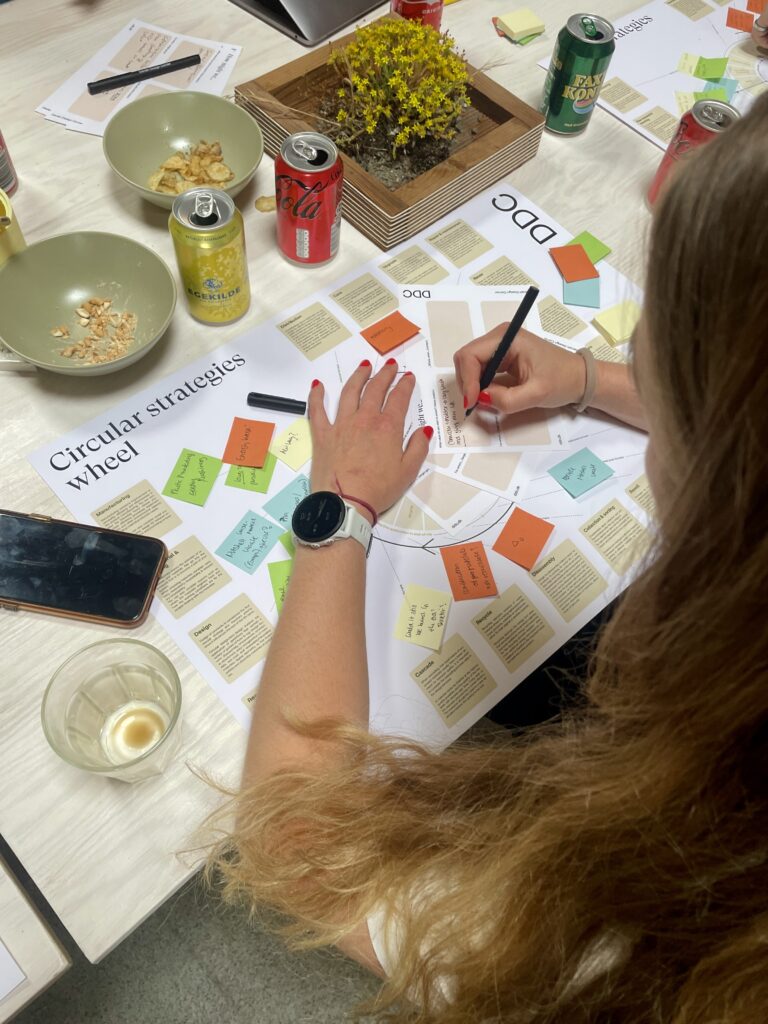
Mekanika is a company that specializes in developing high-quality 3D printers and related services for creators and designers. They focus on providing tools that enable makerspaces to offer precision manufacturing and rapid prototyping capabilities. Mekanika supports the maker community by offering accessible, reliable digital fabrication tools that can be used in various creative fields, from product design to engineering, thereby enhancing the capacity of makerspaces to facilitate innovation and small-scale production.
Mekanika is an important part of the Distributed Design Platform ecosystem by providing high-quality 3D printers and digital fabrication tools that empower makerspaces to offer precision manufacturing and rapid prototyping services. While not a formal member, Mekanika supports the platform’s goals by supplying accessible, reliable tools that enhance the creative potential of makers, designers, and engineers. Their products enable small-scale production and innovation within makerspaces, helping foster collaboration and allowing creators to bring their ideas to life with advanced technology.
Metalab (UA) is a City development laboratory that supports a socially equal, spatially comfortable, culturally rich, environmentally responsible, economically balanced city (environment). Our vision is to establish a makerspace in Ivano-Frankivsk, Ukraine, serving as a platform that fosters innovation in humanitarian aid, med tech, climate change response and economic development. With a unique technical prototyping platform, we aim to provide a space that is inclusive and empowering, fostering learning, creativity, and entrepreneurship for all. By creating a center for peer learning and knowledge sharing, we aim to facilitate collaboration and cultivate a supportive community. A place where the value of science, technology, and design can be added to Ukrainian products. By nurturing innovations and inventions, we aspire to contribute to the growth and success of Ukrainians.
At POLE we experiment with sustainable solutions that can be implemented in the reconstruction of Ukraine, but also that can answer today’s needs and distribute the results. METALAB established a sustainable materials laboratory with a sample library. We will continue the laboratory tests and research with recyclable construction materials that can fully or partially aid Ukraine’s post-war reconstruction. We are planning an event for the community to mark the opening of the new POLE space in mid-July this year. It will be a networking event with a public program for the network of our partners and the local community.
MOME (Moholy-Nagy University of Art and Design) is a leading design and art university based in Budapest, Hungary, known for its focus on innovation, digital technologies, and interdisciplinary approaches to design education. It plays a key role in the makerspace ecosystem by providing a creative environment where students and professionals can collaborate on design projects, explore emerging technologies, and engage in hands-on learning. Through its programs and research, MOME fosters a culture of innovation and supports makerspaces as hubs for design experimentation and prototyping.
MOME plays a significant role in the Distributed Design Platform ecosystem by offering various training programs aimed at nurturing creativity and interdisciplinary collaboration. Through its educational offerings, including courses, workshops, and research opportunities, MOME helps shape the next generation of designers and innovators. Although not a formal member, MOME contributes to the platform by providing access to creative opportunities that enhance the use of emerging technologies and foster a culture of innovation in makerspaces.
Centre for Creativity, a business development platform for professionals working in the creative and cultural sectors, is run by the national Museum of Architecture and Design. We provide product and service development by promoting cooperation between creatives, enterprises, business sector and both the private and public sector as well as offering financial support, education for the development of entrepreneurial and specialised creative skills, the establishment of a partner network, sector integration, internationalisation and promotion of creative sector’s visibility abroad. The Centre is also a national contact point for The New European Bauhaus (NEB) initiative and an EIT Culture & Creativity partner for the development of innovative projects in the CCS.
MAO is also the organiser of the oldest Biennial of Design (BIO), the oldest European design biennial, as well as the founder and coordinating entity of Future Architecture Platform.
As part of the Distributed Design Platform, MAO and Center for Creativity develop projects that take shape at the intersection of different creative disciplines, art, experimentation, entrepreneurship, and business, and have not yet received a system-wide public funding. They promote interdisciplinary co-operation and the development of projects that are commercially viable, increase added value and contribute to social progress and welfare.
Our past and future activities in the DDP scheme focus on facilitating opportunities that deal with questions of locality, community and heritage on the one hand, as well as disseminating these ideas in an international context on the other.
Opendot (IT) OpenDot is a research and open innovation hub, a space dedicated to rapid prototyping and digital manufacturing, open and accessible to all. OpenDot, founded in Milan in 2014 by the design studio Dotdotdot, OpenDot generates changes that find in open source and technological know-how opportunities for growth in educational, design and production level.
OpenDot develops projects and research paths, training programmes and co-design processes involving all the stakeholders to create innovative solutions aimed at generating a positive social impact for people and the planet.
Opendot collaborates with Politecnico of Milan, DOMUS Academy, NABA (New Academy for Fine Arts) among other Universities. For 7 years it has been organizing the 6-months-lasting training Fab Academy, devoted to digital Fabrication and coordinated by MIT Media Lab.
Residency program within the Distributed Design Platform project for designers, artists, creatives, makers and engineers (why not) from diverse backgrounds.
Three theme challenges (to choose along the three options):
- Repurposing and upcycling: from Fashion to … and vice versa
- Transformational design for adaptive fashion.
- Dress the change: fashion as a means for climate activism.
We will offer access to the full facility, mentorship and training.
Other Today is a company focused on creating sustainable and innovative design solutions by leveraging digital technologies and making them accessible to a broader audience. Their work involves using digital fabrication, such as 3D printing and other tools, to develop eco-friendly products and systems. Other Today provides resources for creatives to explore design processes that blend technology and sustainability. By promoting the use of open-source tools and materials, the company fosters collaboration within makerspaces and encourages sustainable design practices in the maker community.
Other Today has been a founding member of the Distributed Design Platform, contributing significantly to the ecosystem by promoting sustainable and innovative design practices. By leveraging digital fabrication technologies, founders of the project Nat and Gareth, support the creation of eco-friendly products and systems, which aligns with the platform’s focus on open-source design and collaboration. Through their work, they encourage the use of accessible tools and materials in makerspaces, fostering creativity and sustainable production methods within the global maker community. Their continued involvement helps strengthen the platform’s commitment to innovative, community-driven design solutions.
P2P Lab (EL) works for the development and maintenance of a global knowledge commons, encompassing a global community of researchers, makers, artists, designers and others, that advocates and monitors models of peer production, peer governance and peer property in every field of human activity. Its wider network includes institutions and organisations from academia and civil society, active grassroots social movements and institutions working for the transition to a P2P-driven, commons future.
Our core activities involve organising events on sociopolitical issues from a commons perspective, providing a platform for creative talents to showcase projects and exchange ideas. To ensure diversity and inclusivity in our activities, we issue an Open Call, through which we select participants for our local activities, typically held in the summer/autumn, contingent upon the availability of participants. Emphasising documentation, we share insights and promote projects through channels like the DD website, the DD book, and the mobility scheme. We ultimately aim to build a global network of makerspaces, exchanging best practices to address global climate change challenges autonomously.
Pakhuis de Zwijger (NL) is a platform for urban development and the creative industry, located in a redeveloped warehouse in the city centre of Amsterdam. What started out as a ‘clubhouse for creatives’ seventeen years ago has now grown into a platform that organises cross-disciplinary discussions, workshops, festivals and more on a daily basis. Urging temporary urban issues with relevant stakeholders. Pakhuis de Zwijger informs, inspires, connects people, effectuates, monitors and reflects.
Pakhuis de Zwijger is a public meeting space and a center for dialogue. Our main activities include organising programmes and public events about urgent and complex social issues. Based on that, Pakhuis de Zwijger provides a stage for Distributed Design talents and creatives to showcase their work in the format of a public event. To select the designers, we post an Open Call in early September each year and do the interviews with talents during October. We record and livestream our events to make them (inter)nationally accessible. Additionally, their projects are digitally showcased on Pakhuis de Zwijger’s website. Finally, strong networking opportunities are provided to creative talents through the events.
Paved With Gold is a company that focuses on the intersection of art, design, and technology. They specialize in creating innovative and sustainable solutions through digital fabrication and creative technologies. In relation to makerspaces, Paved With Gold provides tools, resources, and expertise to support makers and designers in exploring new possibilities in product development and design. They facilitate the use of emerging technologies to create unique, socially-conscious products and installations, contributing to the growth of the makerspace ecosystem by encouraging collaboration and experimentation with digital fabrication techniques.
Paved With Gold is a former member of the Distributed Design Platform, contributing to the ecosystem by specializing in marketing and supporting creative opportunities. With a focus on art, design, and technology, the company played a key role in promoting innovative projects and helping makers and designers navigate the creative process. Through their expertise in digital fabrication and sustainable design, Paved With Gold supported the platform’s mission by connecting creators to new opportunities, fostering collaboration, and raising awareness for projects within the makerspace community. Their work in marketing and strategic support helped amplify the impact of the Distributed Design Platform’s initiatives.
Polifactory (IT) is the makerspace-fablab of Politecnico di Milano, serving as a multidisciplinary research lab aimed at exploring the relationship between design and evolving models of production, distribution, and use within product-service systems, particularly in the context of digital transformation and the shift towards a circular economy. Polifactory conducts competitive research, consultancy, and public engagement initiatives in collaboration with companies and institutions involved in design-driven innovation, user-driven innovation, as well as open and circular innovation. Through its Talents in Residence program, Polifactory supports the pre-incubation of ideas developed by young talents from Politecnico di Milano.
Polifactory offers a residency program on the themes of Distributed Design dedicated to young designers studying at the School of Design of the Polytechnic of Milan, one of the largest and most prestigious Design Schools in the world with over 4000 students attending. Every year Polifactory explores a project theme that represents an innovation challenge for Distributed Design. Through the launch of an Open Call, teams of young designers are selected to develop their projects within the Fab Lab, operating as Makers in Residence and having access to the makerspace and its equipment and counting on the collaboration with the laboratory staff who supports in the design and prototyping phases.
The Polytechnic University of Lisbon (IPL) is a public higher education institution in the metropolitan area of Lisbon composed of eight specialized schools covering Arts, Communication, Education, Engineering, Health Sciences, and Business. The 2019 Newsweek’s global list of maker schools includes IPL, the only Portuguese institution featured. This distinction highlights its role in educational innovation and crisis response through digital fabrication.
The Local IPL DDP activities are coordinated by Prof. André Rocha and his team at the Lisbon School of Education (ESElx). Since joining the Distributed Design Platform in 2018, the team has developed key initiatives, including three editions of Maker Faire Lisboa, participation in Make Something Week with Greenpeace and the Fab Foundation, an annual open call connecting emerging and established DDP creatives, and active engagement in global events such as the Creative Commons Global Summit.
Fablab Benfica, a digital fabrication laboratory at ESELx and the only Portuguese node in the Fab Academy network, supports these activities. The lab serves as a prototyping space and educational hub, supporting initiatives like fabschools.pt and the Postgraduate Course in Design of Interactive Products for Education, in which students learn to and develop interactive educational products ranging from digital applications to tangible objects.
The combination of IPL’s institutional framework, the local DDP team’s initiatives, and Fablab Benfica’s technological support exemplifies how academic institutions can effectively implement distributed design practices while fostering collaboration within the European Union.
Precious Plastic is a global project that provides open-source machines and tools to recycle plastic waste into useful products. Through its network of community-run workshops and makerspaces, Precious Plastic empowers individuals and groups to create sustainable products from plastic waste, turning pollution into a resource. The platform supports the makerspace ecosystem by offering both the digital designs and physical machines necessary for creating a circular economy around plastic recycling.
Precious Plastic is a key player in the Distributed Design Platform, offering open-source machine designs for recycling plastic waste into new products. Through its network of community-run workshops and makerspaces, it provides the tools and resources for individuals and organizations to process plastic waste locally, turning it into valuable materials for creative projects. Precious Plastic fosters a circular economy and sustainability by empowering makers to innovate in small-scale recycling, contributing to a global network of environmentally conscious creators.
Prusa3D is a leading manufacturer of 3D printers and related technology, known for producing high-quality, open-source 3D printing machines. They provide accessible 3D printing tools and resources for makers, designers, and engineers, enabling rapid prototyping and small-scale production. In relation to makerspaces, Prusa3D offers reliable and user-friendly 3D printers, along with an active online community that shares tips, designs, and support, helping to democratize the use of 3D printing technology within creative and maker communities.
Based in Budapest, Prusa3D is a close partner of the Distributed Design Platform, providing accessible and scalable 3D printing technology to makerspaces including Fab Lab Barcelona. Their reliable printers support innovation and rapid prototyping, empowering creators to bring their ideas to life. With strong connections to Arduino and other technological providers, Prusa3D enhances the platform’s ecosystem, fostering collaboration and enabling makers to integrate advanced tools into their projects. The founders’ ties to the broader tech community further strengthen the platform’s mission to drive creativity and innovation in maker spaces.
re:publica is one of the largest and most exciting conferences centered on digital culture, which explores how technology impacts society, politics, and everyday life. Originating in 2007, it has grown into one of Europe’s largest events of its kind, attracting a diverse audience of activists, scientists, hackers, entrepreneurs, NGOs, journalists, social media and marketing experts, and many others. The festival features a wide range of activities, including lectures, workshops, a pop-up makerspace and panel discussions that cover topics like internet policy, digital rights, and future technologies. Held annually in Berlin, re:publica fosters a collaborative environment that fosters innovation and creates synergies between net politics, online marketing, network technology, digital society, and (pop) culture.
In cooperation with the Global Innovation Gathering (GIG), re:publica hosts a pop-up Makerspace during the festival over three days. Here, makers from around the world come together to meet, hold, and participate in making-related workshops and meet-ups, and connect with an audience new to the Maker movement. At the Makerspace, there are also various open-source hardware exhibitions and co-created art pieces displayed each year. Our creative talents contribute to the program by either holding a workshop or creating off-stage pieces to exhibit on-site.
SPLOT Institute (PL) inspires cross-disciplinary creative collaboration to address pressing social, environmental and economical challenges. We deliver schemes for young creators from diverse backgrounds using our own methodology, successfully applied in international projects such as SPLOT UA Residency (organized in collaboration with the US Department of State and the US Embassy Warsaw), Direction Earth/Space Creative Campus (for the European Space Agency) and ART+DESIGN+SCIENCE schemes (supported by the Polish Ministry of Culture and National Heritage).
As part of the Distributed Design Platform, we have launched SPLOT Open – an initiative that focuses on building an inclusive, open and interdisciplinary community where we strive to democratize access to knowledge and creation. As part of the scheme, we facilitate a space for meetings, interactions and exchange of ideas that have openness in their DNA. To make sure that we are open indeed, we welcome a wide array of initiatives. Our definition of openness includes components ranging from open licensing, co-creation and circulation of knowledge sharing or open data to community governance, circularity and decentralized decision-making.
The Flipflopi Project is an environmental initiative focused on creating sustainable solutions by upcycling plastic waste. The project is best known for building the world’s first traditional dhow boat made entirely from recycled plastic, promoting the idea of a circular economy. In relation to makerspaces, the Flipflopi Project encourages innovation by involving local communities and makers in repurposing waste materials into useful products. Their work fosters a culture of sustainability, teaching makers how to transform plastic waste into valuable resources through creative and environmentally conscious design practices.
The Index Project has strategically been part of the Distributed Design Platform, advocating for design solutions that address critical social and environmental issues. Their long-standing involvement fosters collaboration and highlights the importance of design for social impact. By recognizing and supporting groundbreaking creative solutions, the Index Project amplifies the platform’s ethos of collective innovation, encouraging makers and designers to develop tools and products that contribute to a more sustainable and equitable future.
TMDC (Workshop for the Materialisation and Development of Concepts) is a makerspace born within Betahaus Barcelona, evolving from a small carpentry workshop into a 5000m² industrial space.
Equipped with advanced tools and machinery for woodworking, metalworking, and plastics, TMDC empowers creators to transform ideas into tangible, locally made products. Its mission is to offer flexible access to manufacturing resources for curious and hands-on makers and creatives.
WASP (World’s Advanced Saving Project) is a company pioneering sustainable 3D printing, particularly in architecture. Their projects, like the TECLA 3D-printed house, use alternative materials such as soil, replacing traditional concrete to create more sustainable housing. WASP supports makerspaces focused on sustainability and innovation in construction, offering tools and technologies that empower communities to create eco-friendly, low-cost housing.
WASP has been an integral part of the Distributed Design Platform, offering innovative 3D printing technologies that enable sustainable design and construction. Their focus on using eco-friendly materials, such as soil in place of concrete, aligns with the platform’s commitment to addressing global challenges. By providing both digital tools and physical machines, WASP enhances the makerspace ecosystem, allowing creatives to explore sustainable architecture and construction methods while pushing the boundaries of 3D printing.
Wikifactory is an online platform that enables collaborative product development, primarily for makers and designers. It supports real-time collaboration on hardware projects, offering tools for version control, CAD sharing, and team communication. Wikifactory complements makerspaces by allowing distributed teams to work together seamlessly on designs and prototypes, enhancing collaboration and streamlining the development process.
Since 2017, Wikifactory has been a key part of the Distributed Design Platform ecosystem, enabling collaboration on hardware projects. As a sponsor of the Distributed Design Awards, it supports open, collaborative design practices and innovation within the maker community.
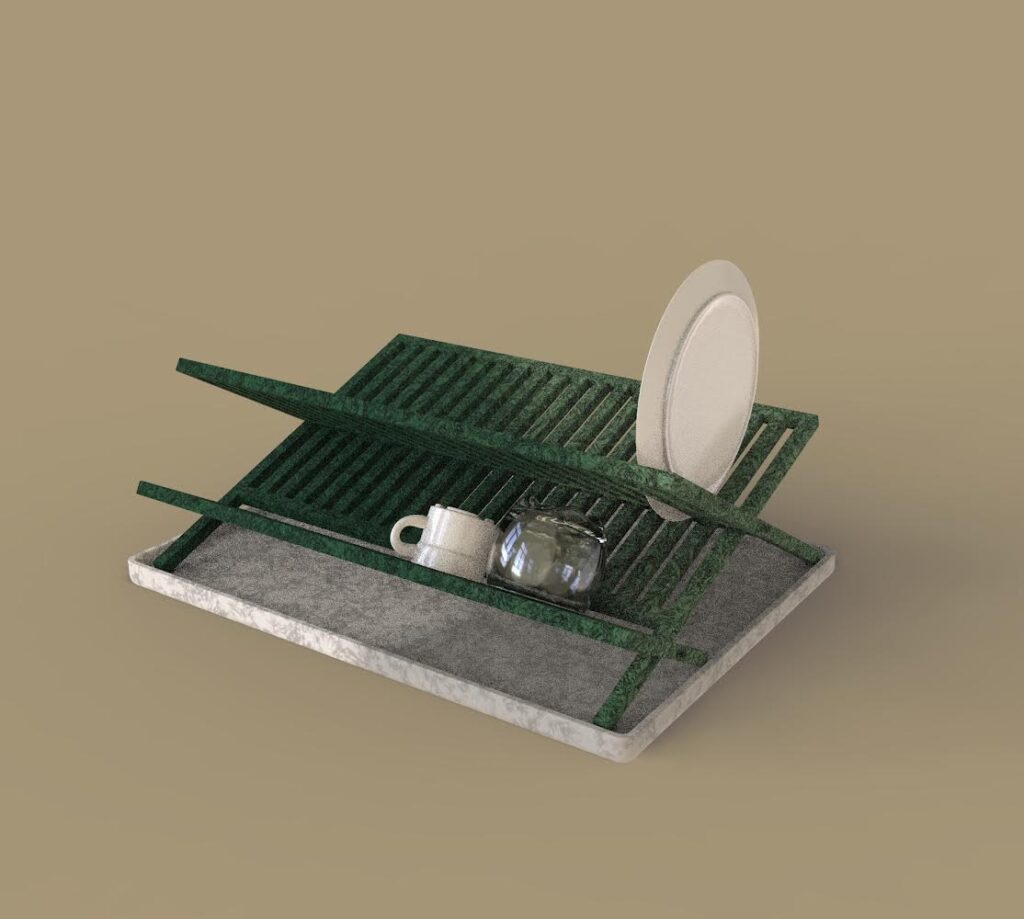
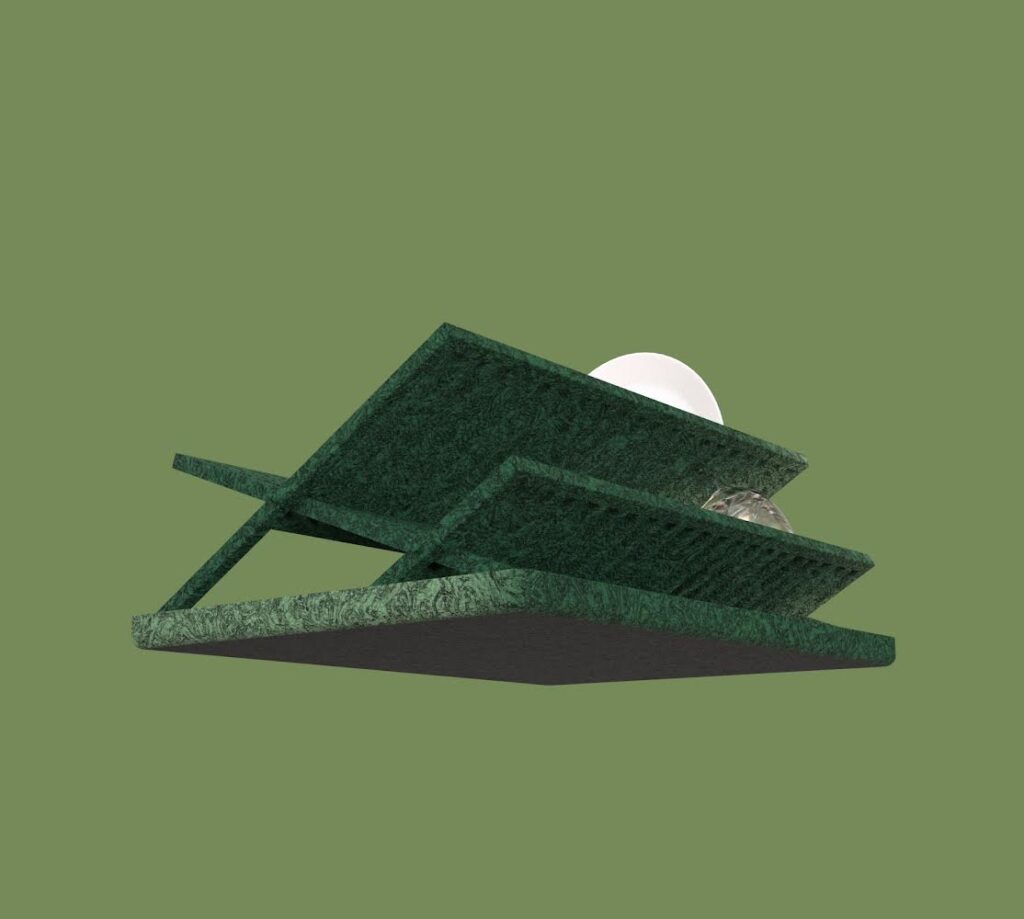
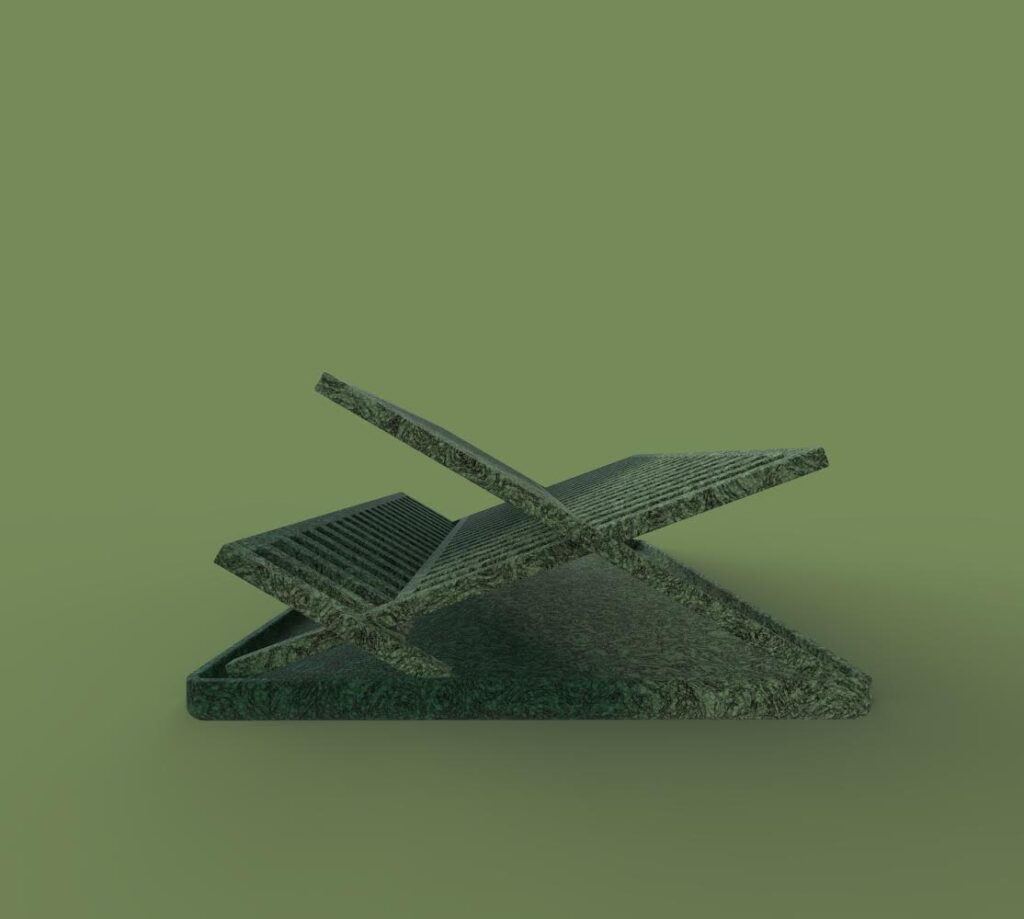

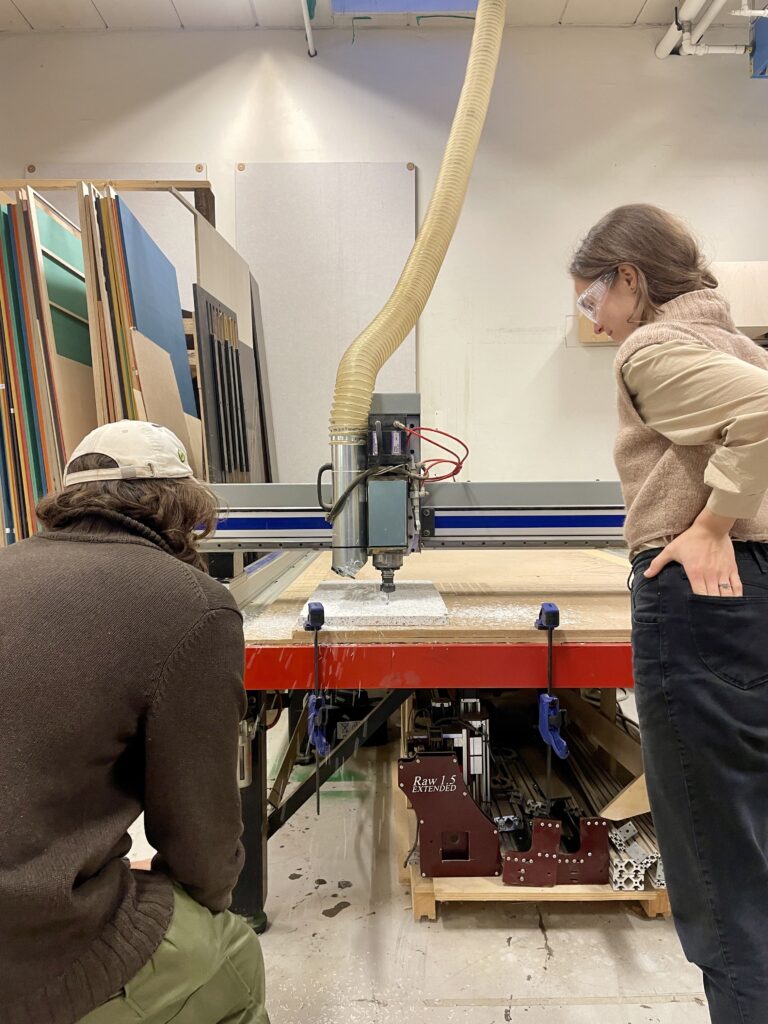
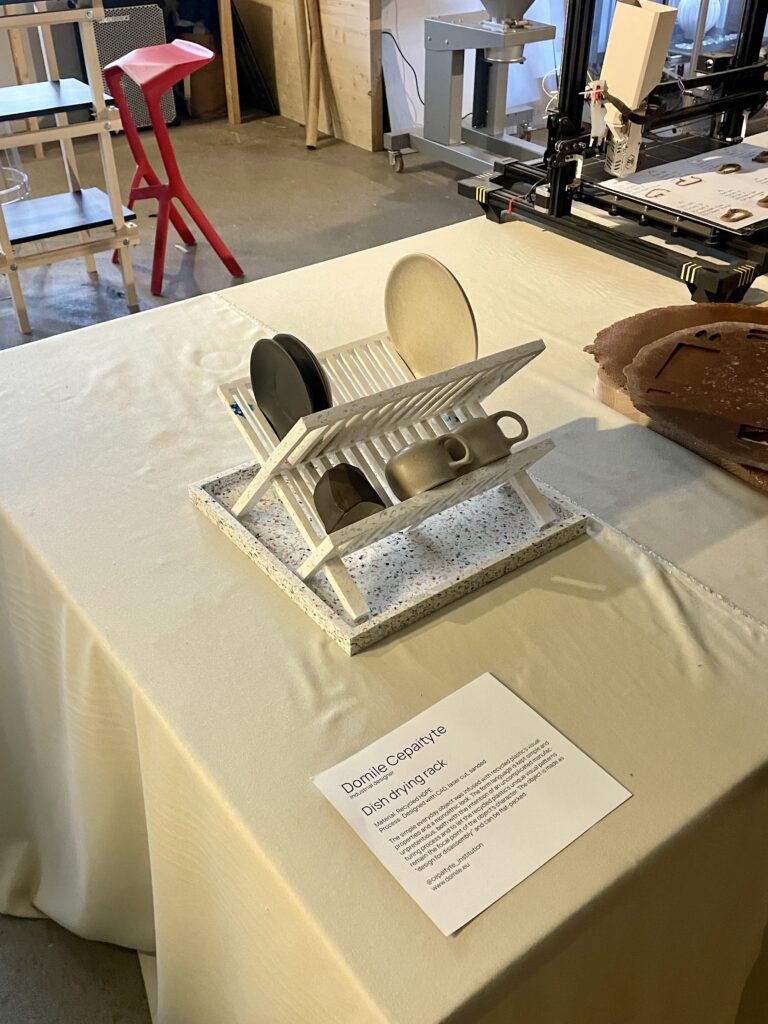
Transforming waste into high-performance bio-composites
As part of the Distributed Design Residency 2024 at Maker V-10, Danish startup Nuterials advanced their mission to replace traditional plastics with biodegradable bio-composites made from upcycled walnut shells. Specializing in injection molding, 3D printing, and thermoforming, Nuterials explored new production methods to optimize their material for real-world applications.
With access to state-of-the-art manufacturing technologies, the residency allowed Nuterials to refine their material’s performance under heat, pressure, and different fabrication techniques. Collaborating with experts and designers, they expanded their research into sustainable 3D printing by developing a bio-plaster from walnut shells and bio-resin.
Beyond technical innovation, Nuterials embraced Distributed Design as a tool for scalable, circular solutions. Partnering with Jardines en el Aire (FabLab Sevilla) and Antonio Esparza, they contributed to the Worm Tower project, applying their bio-composites to urban agriculture and regenerative design. With this collaboration they experimented with using their walnut material for 3D printing.
The residency strengthened Nuterials’ vision for collaborative material innovation, reinforcing the potential of waste as a valuable resource. Moving forward, they continue to seek partnerships with designers and manufacturers eager to integrate sustainable materials into future products.
Nuterials is redefining sustainable packaging by turning walnut shells into elegant, reusable packaging solutions and biodegradable materials. By combining circular design principles with material innovation, they preserve the natural beauty of walnut shells while ensuring durability and functionality.
As part of the Distributed Design Residency Programme, Nuterials explores new ways to scale their eco-friendly materials, fostering collaboration between design, technology, and sustainability. Their work embodies the programme’s commitment to responsible material use and innovative design approaches, shaping a future where waste transforms into valuable resources.
